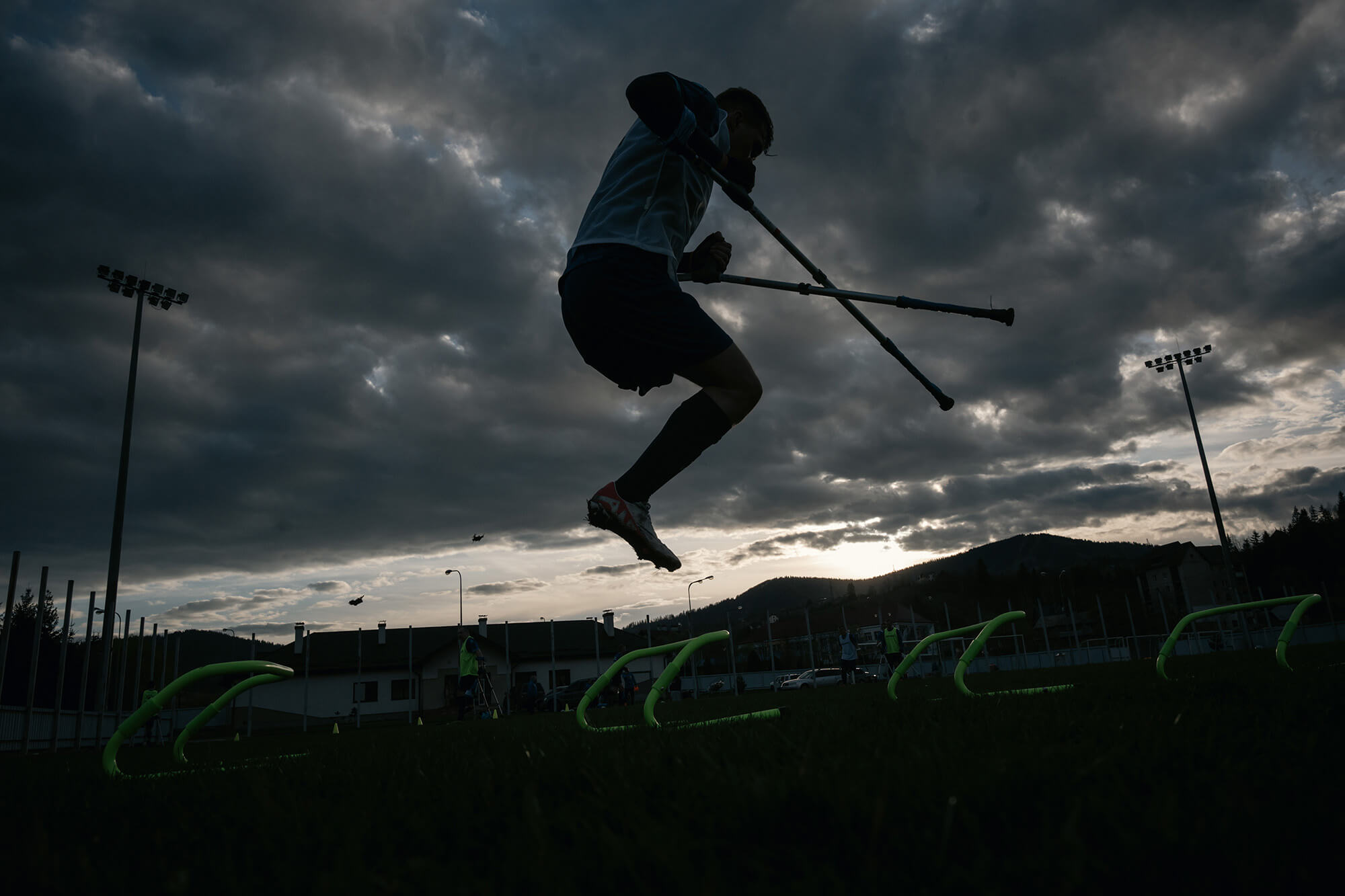
God Plays with Us
Fr. Mykhailo Chaban, the Salesian superior of the Mary Help of Christians Greek-Catholic Rite Vice-Province of Ukraine*, stands on the sidelines of a stadium in a small Swiss town, watching a French team play. He had brought a group of young Ukrainian footballers for a camp and tournament in France.
His gaze remains fixed on the crutches he sees on the field—this is the first time he has seen anything like this. Football players with amputations, who arrived from Marseille, dart around the field. They compete against a team without amputations. Then comes the moment: the ball is right next to one of the players, and he must kick it. The player plants the crutches firmly on the grass, leans into them, raises his leg, and kicks the ball. His other leg is missing.
Life pulsates with vigor. People with crutches and missing limbs move around nimbly, exchanging shouts and quickly building combinations. Even the goalkeeper is missing an arm. Yet, it’s still football, just as ordinary as ever. The team from Marseille wins.
“They don’t even think about their injuries,” Fr. Mykhailo suddenly realizes. “What if…”
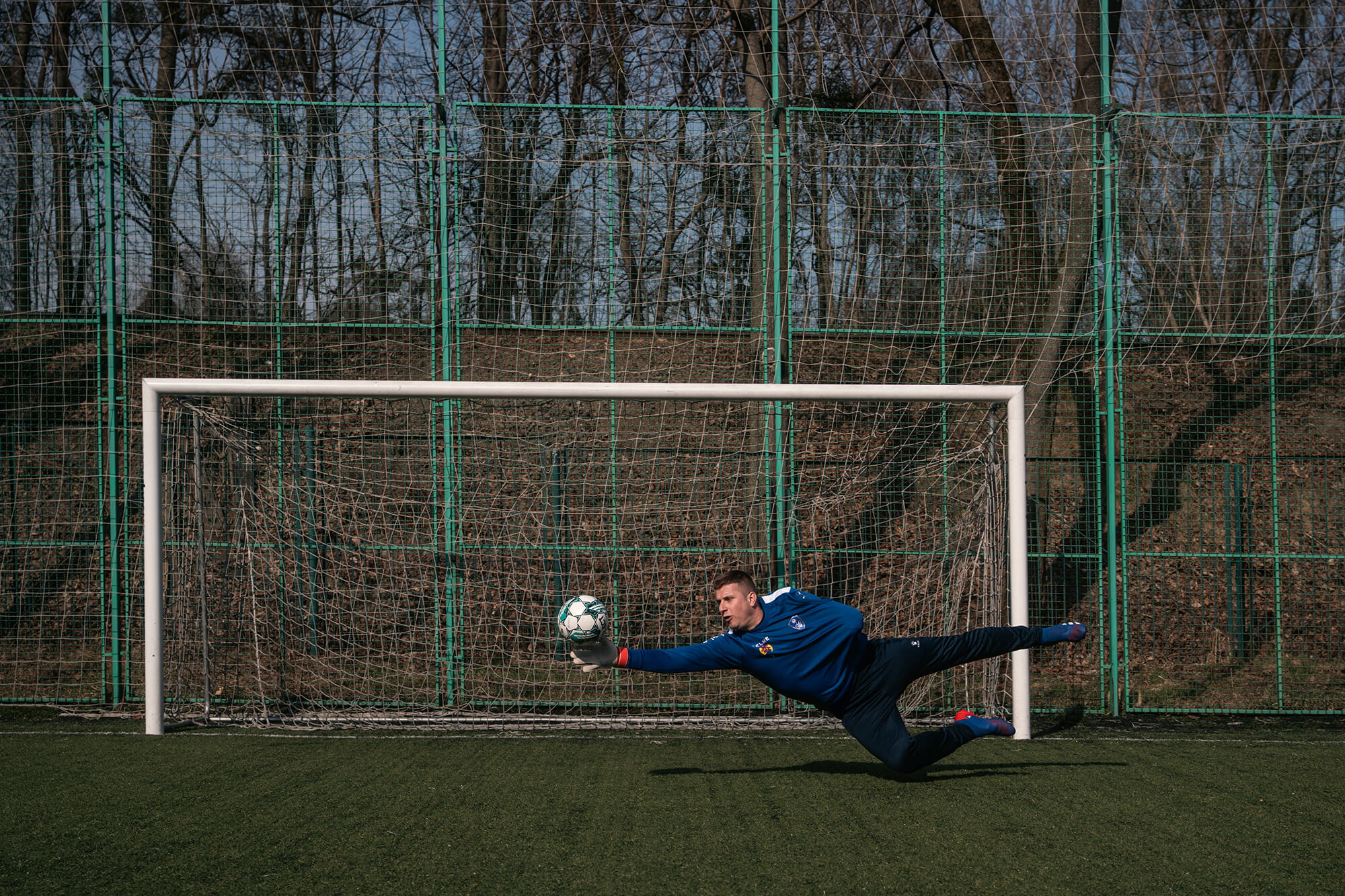
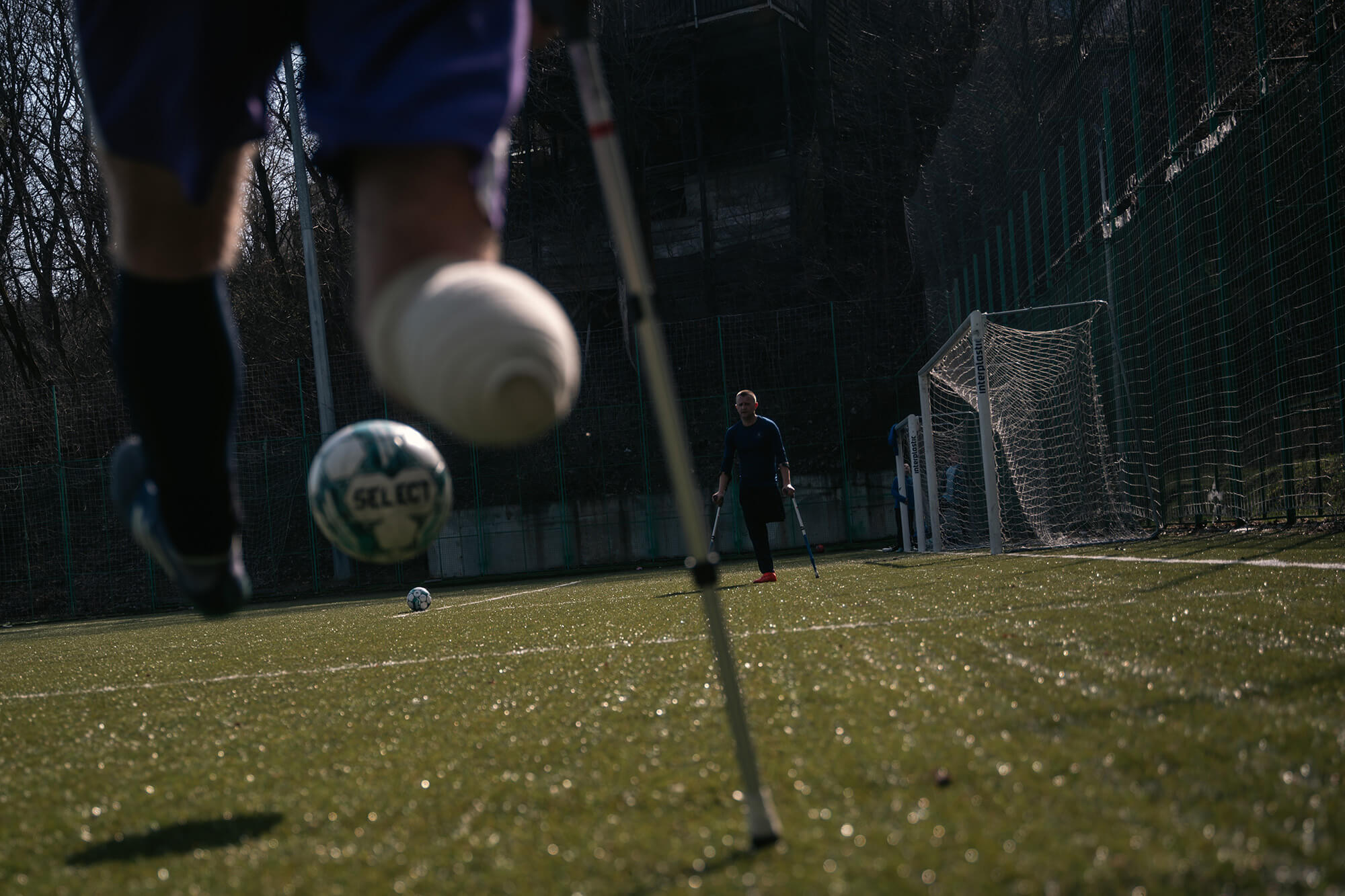
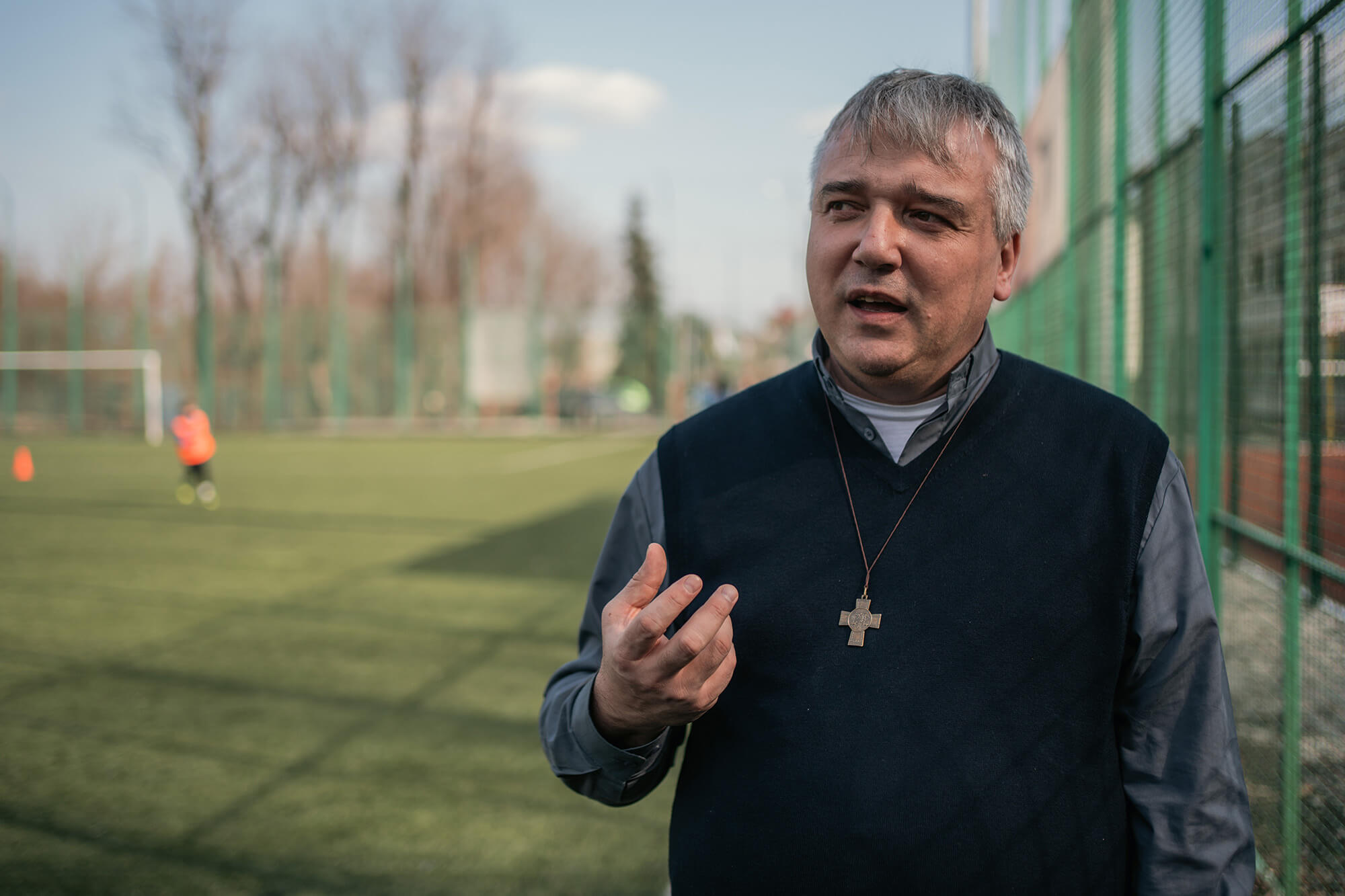
It’s the summer of 2022. His country has entered its eighth year of war.
Pokrova
The first football team for Ukrainian veterans who lost limbs in the war was founded in Lviv through the initiative of St. John Bosco Salesian Greek Catholic Congregation. Now six months old, the team has already competed in tournaments across Europe, progressing at a pace beyond anyone’s expectations. These soldiers, many of whom served in assault units, fight for the ball on the field as hard as they once fought in and between the trenches. Each of them is striving to reinvent themselves after sustaining a severe injury.
The Salesians operate their own youth center with a training ground. They organize a variety of activities, events, trainings, and workshops. Fathers Salesians created this space for service—for their work with young people. Reviving warriors through football is another aspect of their mission. That’s why Fr. Mykhailo, leader of the Ukrainian Salesians, often travels to tournaments, standing on the sidelines in places like Wroclaw or Rzeszów as the team’s representative. It’s hard to say who gives more joy to whom: the Salesians to veterans or vice versa.
On the wall of a large futsal court at St. John Bosco Center, a venue for all kinds of competitions, there is an inscription: “God always plays for your team.”
“There’s a certain philosophy in this,” the coach says. “God plays for your team if you’re open to it, but otherwise not.”
Everyone is treated with respect, whether they have long been devout believers or have reached for God for the first time only in the trenches. They strive to heal people through sports and communication—with emphasis on the latter.
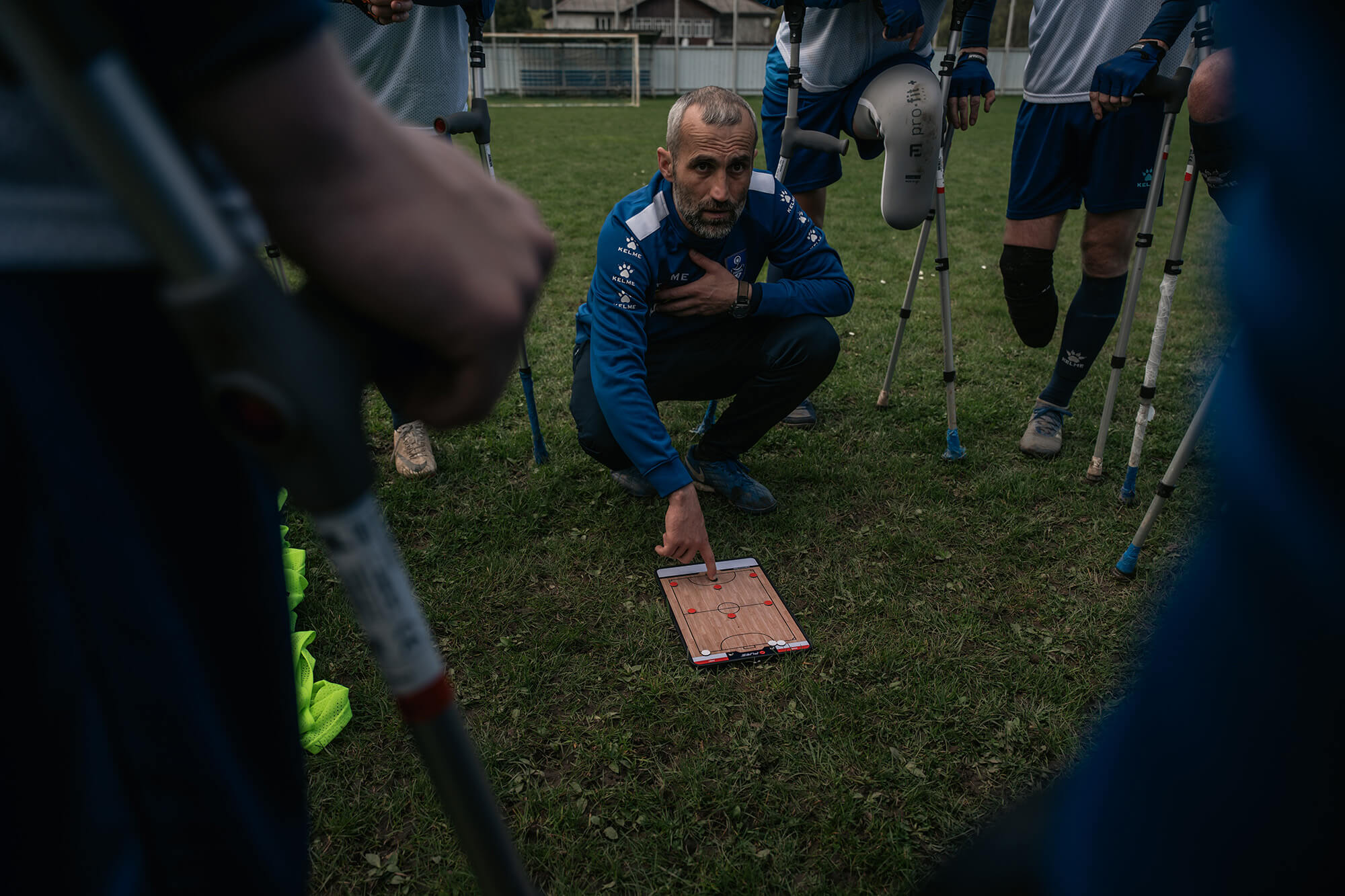
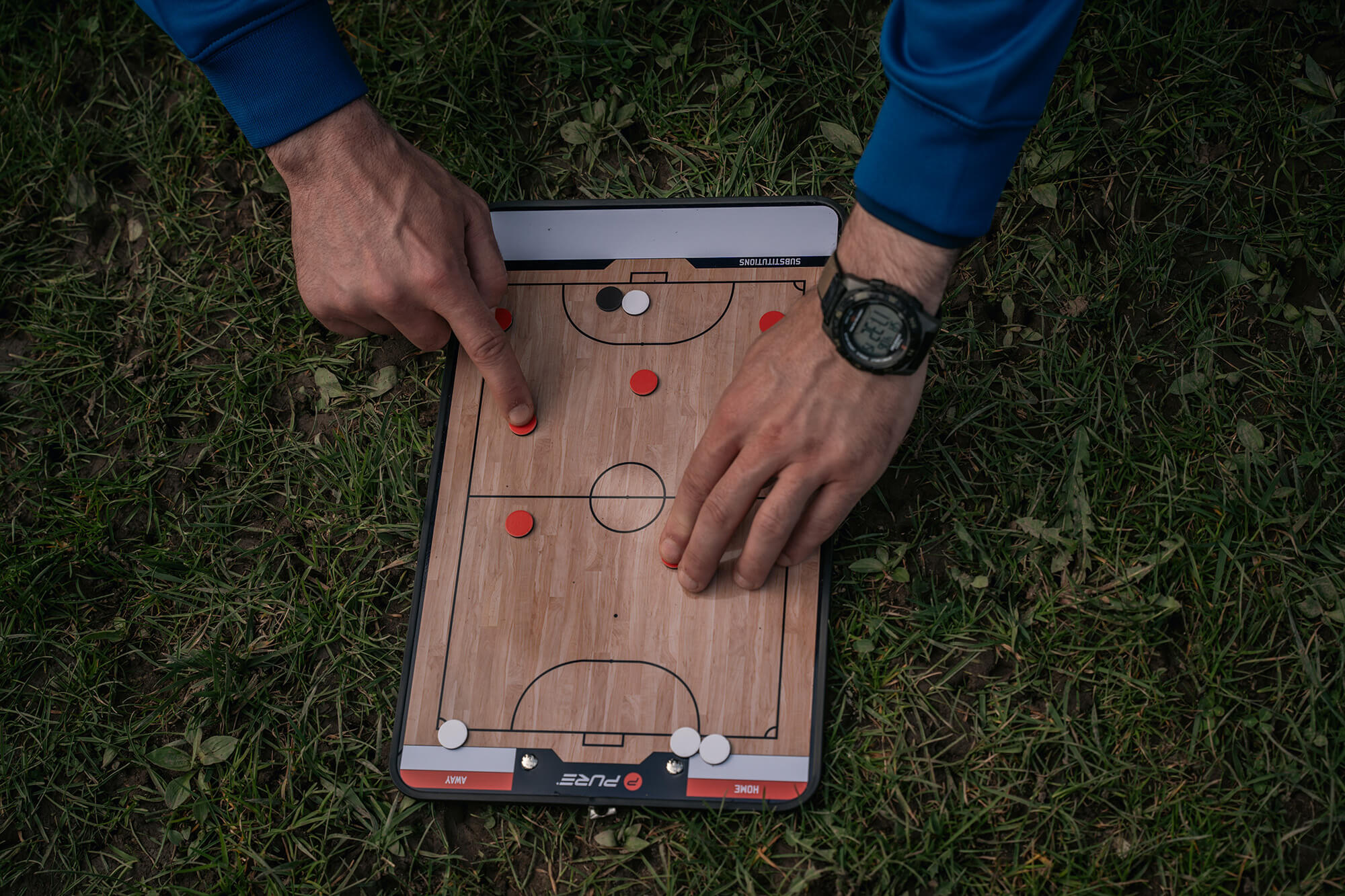
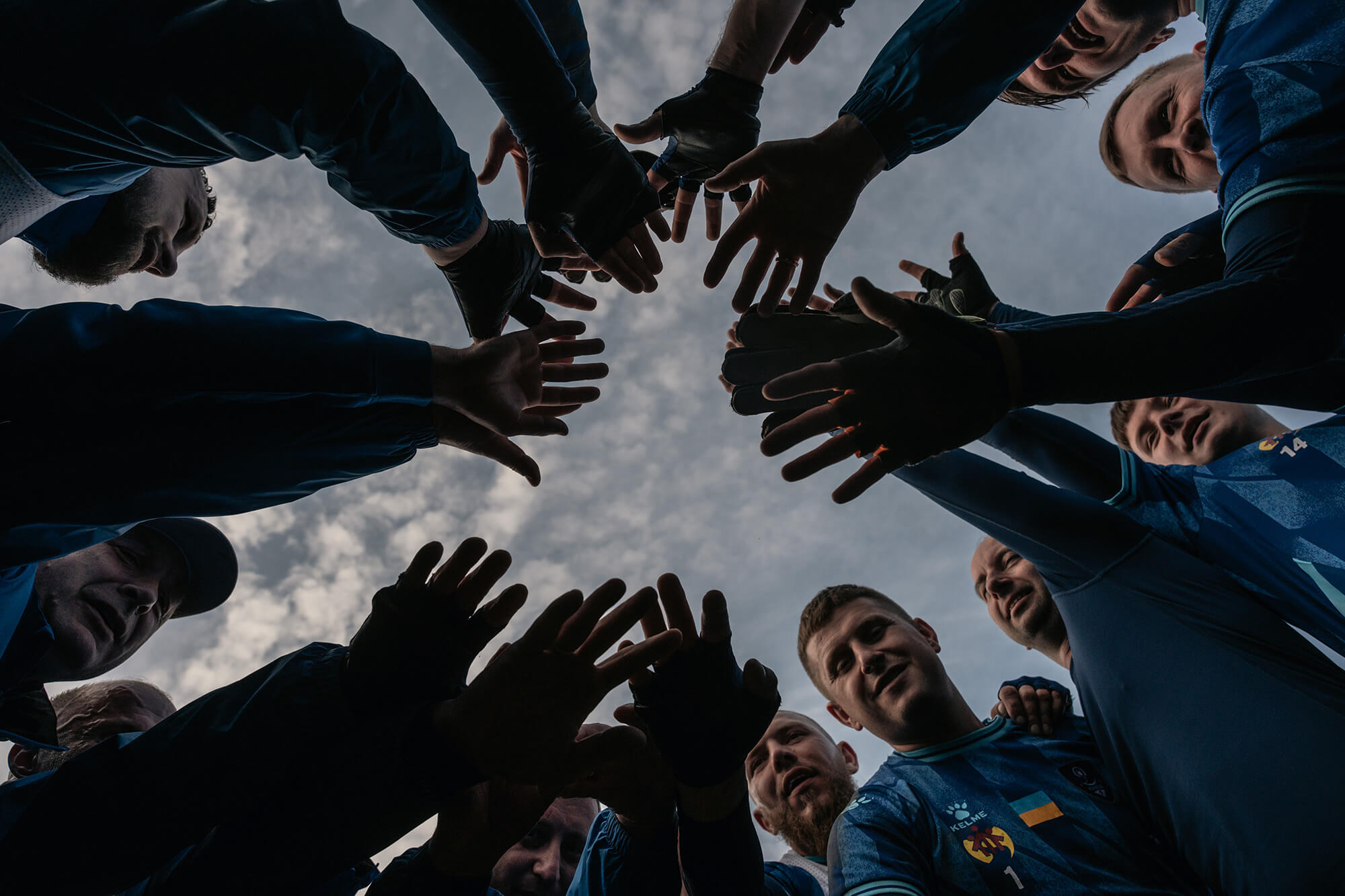
Occasionally, men with prosthetics would visit the center. Some have already been discharged from military service, while others are still undergoing rehabilitation, their veteran status pending. They walk downstairs into the basement of the sports complex, where they put on uniforms, remove their prosthetics, and pick up the crutches. These specially designed crutches have fixtures that won’t let them lose their grip and will anchor them firmly on artificial—or even natural—grass. Bantering amongst themselves, they step onto the football field. Until recently, each player served in a Ukrainian army brigade—the 5th, the 24th, the 10th, the 63rd, the 68th—defending their homeland from the enemy. Today, all of them are members of the Pokrova Lviv team.
Outside the futsal court, these young men sometimes talk about the war. They recall moments when they had nothing and no one to rely on. So, they relied on God, and He saved them. Today, God brings together all of them—former members of assault units, reconnaissance scouts, snipers who lost limbs in combat—onto the futsal court and plays football with them.
This game heals. Its main goal is rehabilitation. But Pokrova, with its veterans turned football players, has become more competitive, even professional, so it even becomes hard to imagine that these men actually play football on crutches, without legs or arms. Officially based in Lviv, the team draws members from all corners of Ukraine—those who were in hospitals and rehabilitation centers yesterday and on the battlefield the day before.
Bohdan Melnyk, the head of the team and, until recently, its chief coach, says that these men stand out among other football players in one respect: They have returned from war, so “no opponent in the world daunts them.” They step onto the field, determined to win.
“And what about you? Do you play football?”
“Bohdan, we should start searching for a coach,” Fr. Mykhailo told Bohdan the other day.
By that time, Fr. Mykhailo, the Salesian superior, had already returned to Lviv but was still pondering the idea that had intrigued him so much in Switzerland—establishing and taking care of a football team for military officers with amputations. Melnyk, a manager of the sports complex at St. John Bosco Center, also ran several side projects and had a strong affinity for sports. Trained as a coach educator, he specialized in working with athletes with disabilities. But still.
“Father thought that I might know someone and could recommend them. Looking back, we laugh about it because a coach sitting on the bench and waiting for players to come to him wasn’t exactly who we needed. We realize that now, but at the time, it wasn’t so clear,” Melnyk says.
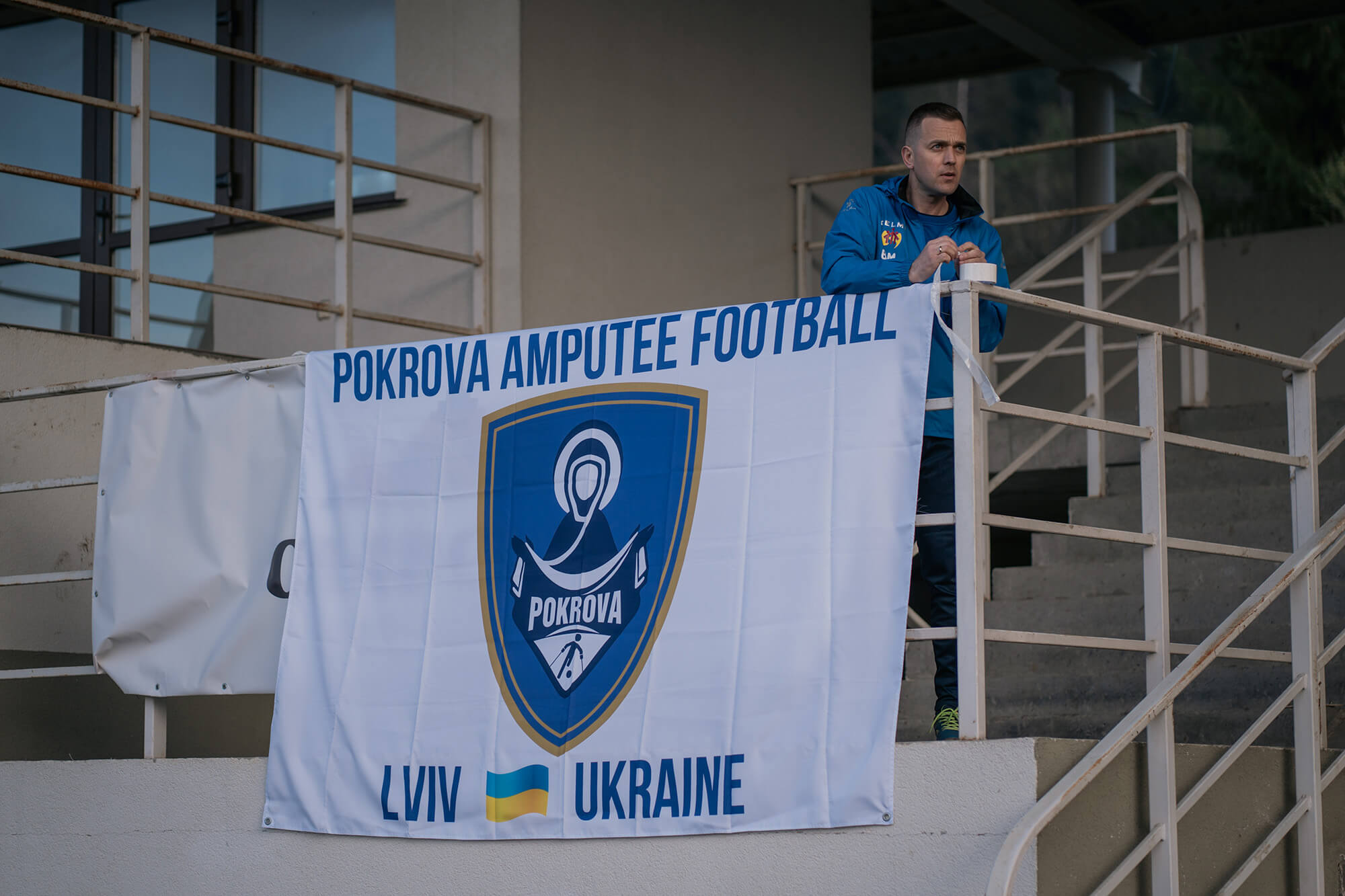
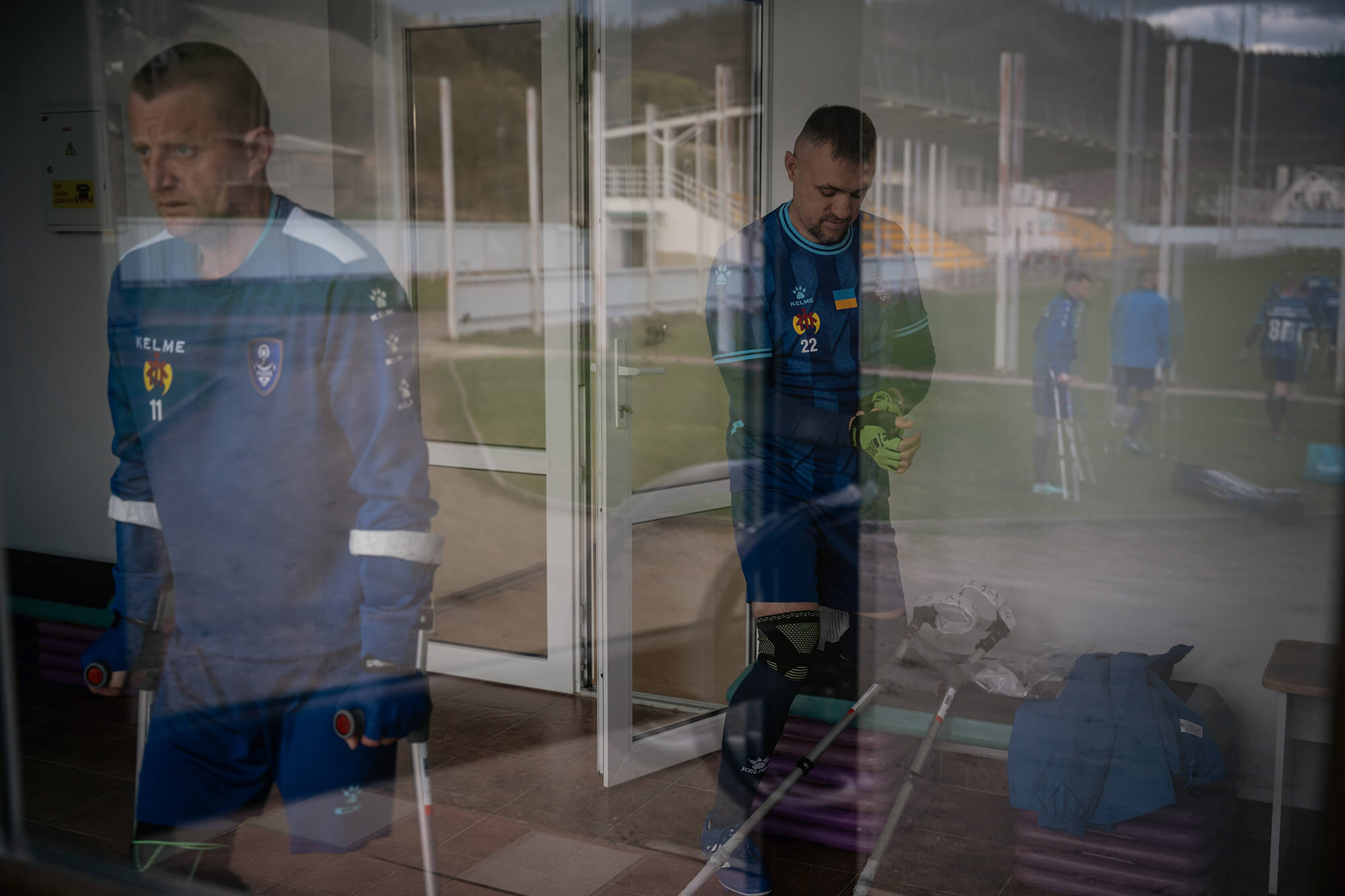
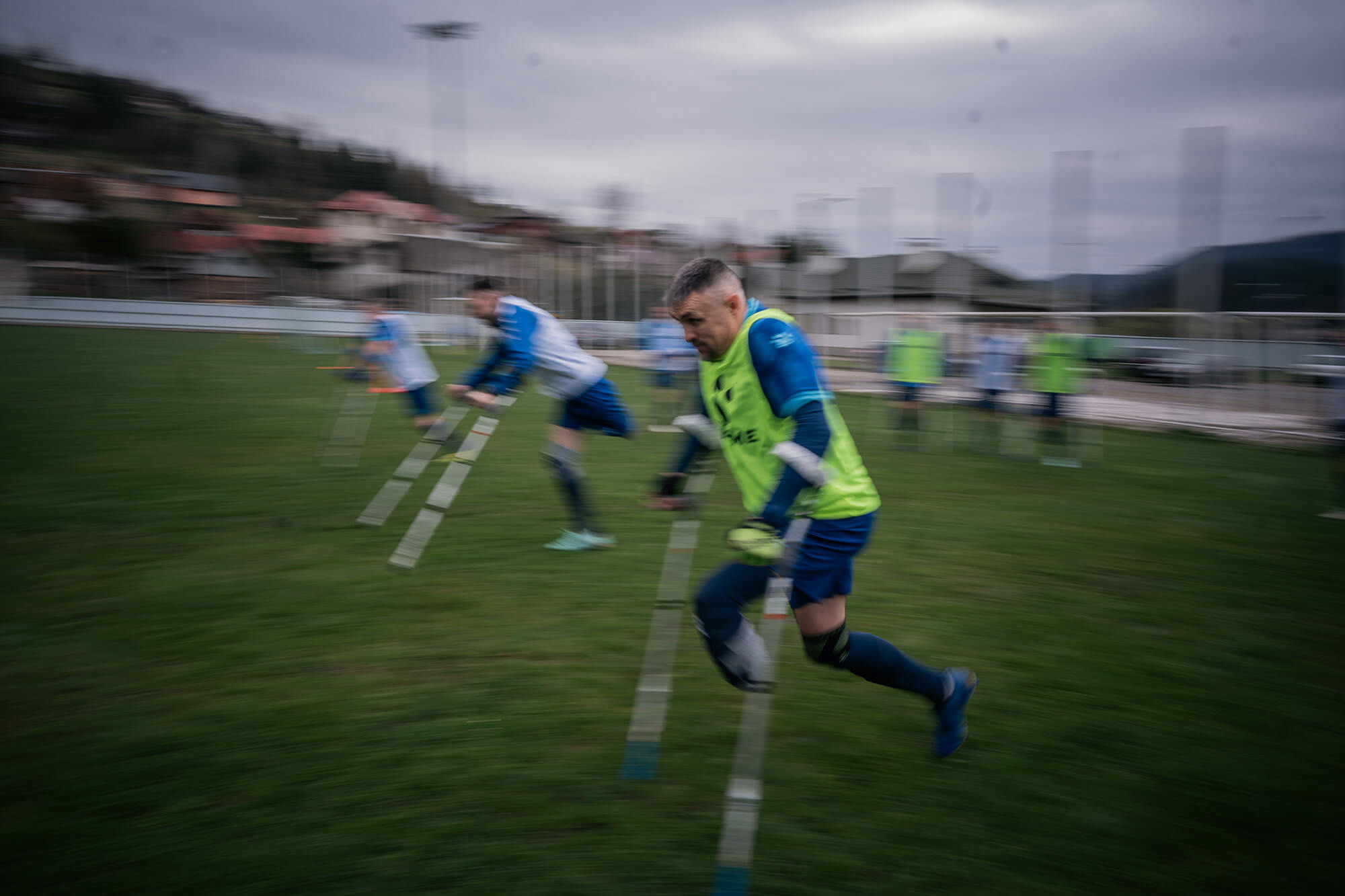
Until then, they knew little about amputee football: how the processes were organized and under whose auspices it should be done. They had heard about the Disability Football Association and national teams, but since there wasn’t one in Ukraine, they lacked a source for more information. So, they wondered who could share their experiences with them and where they could go to see how it all worked. It turned out that the Polish championship was one of the top-ranking in Europe, and the Polish team was led by a Ukrainian futsal coach. He responded promptly, and the Poles volunteered to help.
They rushed to search for players.
One morning, Fr. Mykhailo and Melnyk hopped into the car and drove to Vynnyky, a town just outside Lviv. The hospital in Vynnyky is home to Superhumans, a center for prosthetics, reconstructive surgery, and rehabilitation for war victims, which opened its doors a few months ago.
The center was impressive. They spent some time wandering around the campus, taking in its various facilities. “Who among these people could join the team I’m putting together?” Melnyk wondered. They didn’t even have a coach yet.
“Finally, Father and I sat down on a couch in the hall,” recalls Melnyk. “I was wearing the national team’s kit with the trident. We talked about football. At one point, I felt someone watching me. I looked up and saw a young man by the coffee machine. He was fixing himself a cup while staring straight into my soul. I knew I had to strike up a conversation. He was three meters away. And suddenly, I just blurted out, “And what about you? Do you play football?” And he went, “Of course I do.” Later, I called the association representative and said, ‘We’ve got our first player on board!’”
The eyes of Kostia Kashula from Uzhhorod—the man by the coffee machine—lit up. He had fought in the 5th Separate Assault Brigade and lost his leg in February 2023 outside Bakhmut. As he learned how to live with a prosthetic, he contemplated his future. Today, Kostia is the team captain. Several times a week, he boards the train from Uzhhorod to Lviv for practice or training camp. He was the first to join—and he became a leader, setting an example for others.
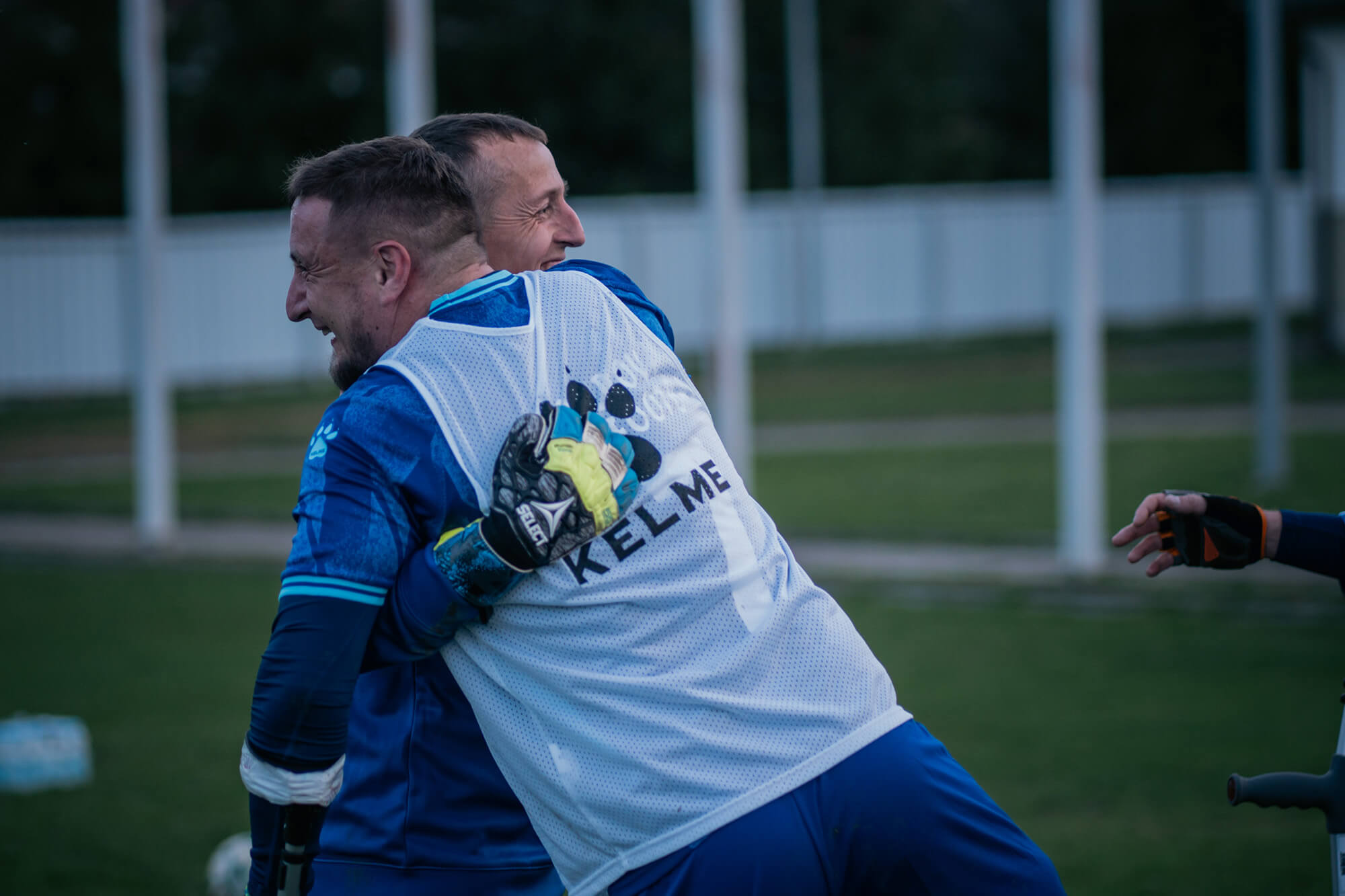
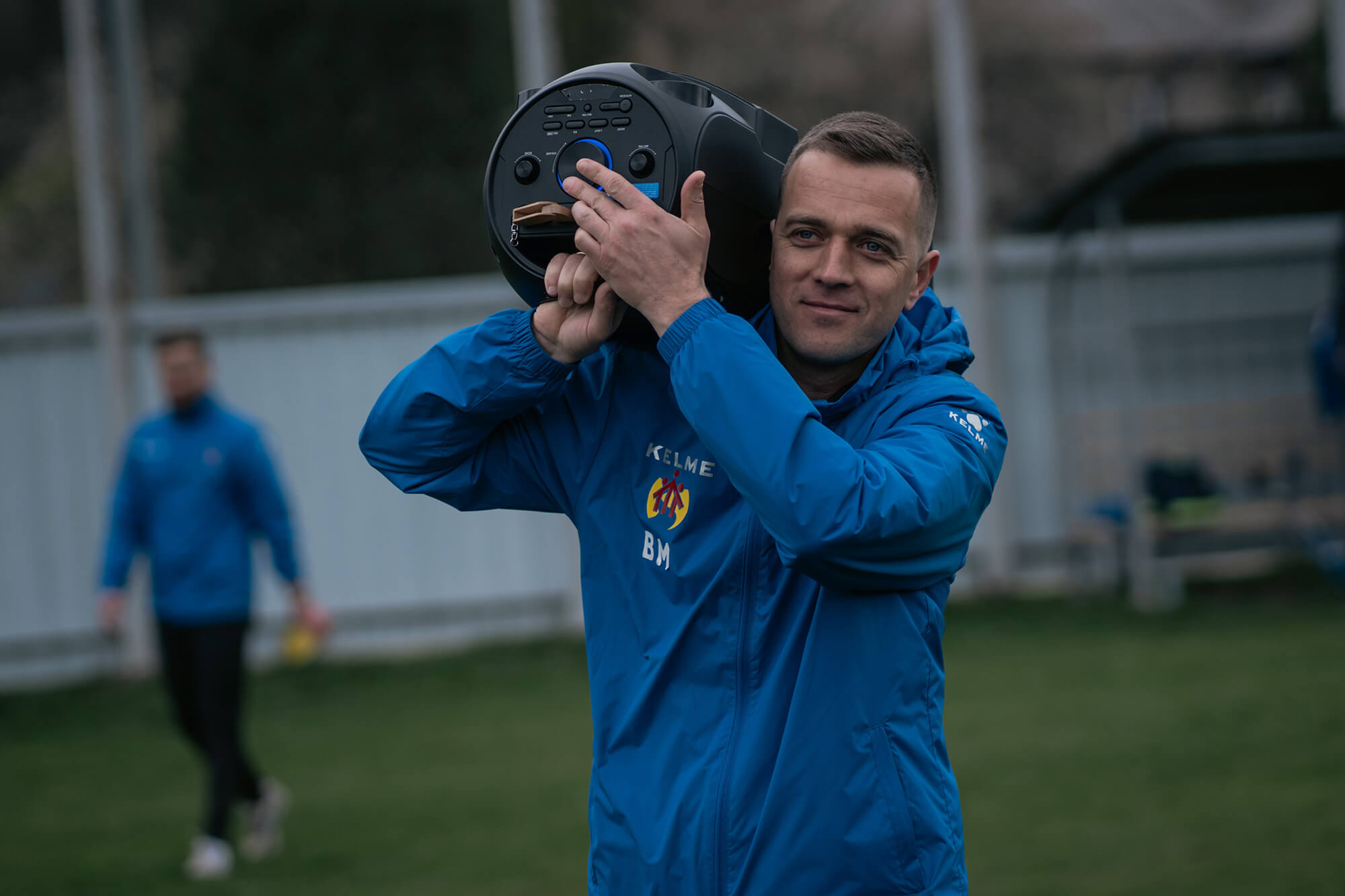
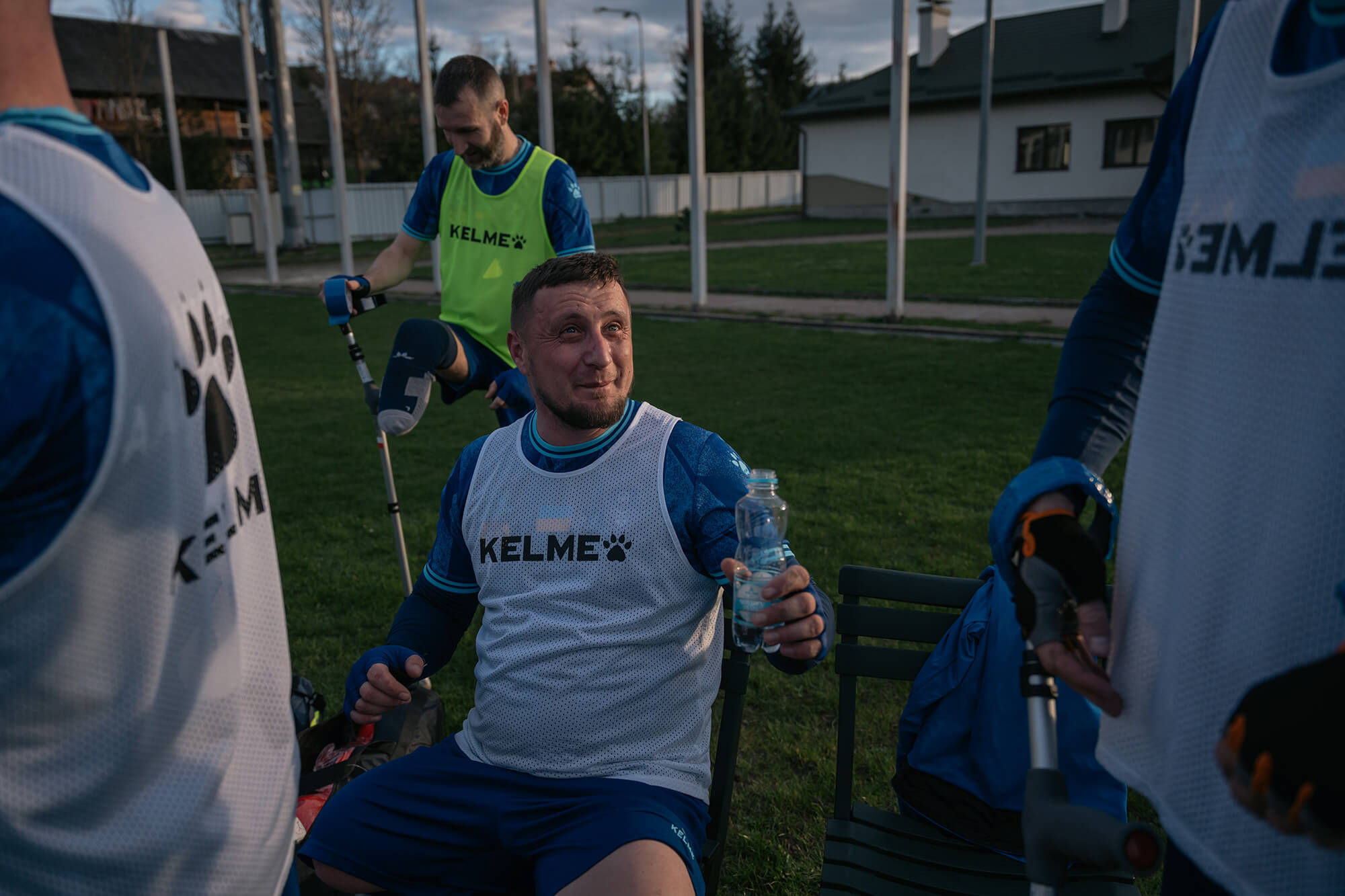
Kostia’s story is one of an amateur athlete transitioning into professional sports. He stepped into it straight from the coffee machine at Superhumans, and his story was used as a promo.
“We began visiting all kinds of rehabilitation centers,” Melnyk says. “We did it in a kind of an easy way, without any sense of embarrassment. Boys would come down for lunch at the Halychyna center, and we’d go, ‘Hey! We’re playing football. Would anyone like to join us?’ Or we’d go to the Unbroken center, sit down in the hall with a laptop, and tell people about us and what we did. Soon, we were invited on TV. Then, I saw this friend of mine on TV who used to play futsal two years ago as a student at the Ground Forces Academy. He was missing a leg. Our boys and I jumped into the van and called him, saying we were on our way. We walked into his hospital room and found the guys there in good spirits, chatting away. “Andriy,” our boys said, “we were just like you until recently. And now, look: they’ve fitted us with new legs, and everything’s okay.” Andriy’s face lit up. I also have another, more personal story: I walked into the bathroom, turned on the telethon, and while brushing my teeth, I saw this guy giving an interview. He said, “Before the war, I played football…” Bingo! The next thing I knew, I had his last name and the name of the rehabilitation center in a village near Chernivtsi. The geographical diversity of our team is just incredible. Lviv may be one of the main rehabilitation hubs in Ukraine, but we’re not concerned with anyone’s regional affiliation. If you want to play with us, just come join us.”
He smiles, then continues after a pause:
“There was this guy, Ivan, who’d always stand there and smoke while watching us load into the van by the rehabilitation center. One day, we struck up a conversation, got him into the van—and took him to the field to watch us play. Now, Ivan is our team’s favorite.”
Ivanko the stove builder
“Just let Ivanko build a stone stove for you—you won’t ever get a better one! He’s the best stove setter in the entire Carpathians!” Roman Dudyn, the massage and physical therapist at Pokrova, says.
A slender, dark-haired, nimble young man emerges from the group of veterans, crutches in hand. People here call him Ivan from Kolomyiia and enjoy teasing him. He likes cracking jokes, too. However, Ivan Terletskyi is actually from Khomiakivka, a small village in the mountains 18 kilometers away from Kolomyiia. “He’s a true Hutsul,” Dudyn says with a wink. And indeed, he’s skilled at setting stone stoves.
“Each of them has their own grown-up life. They’ve all been through things, horrible things,” Dudyn adds, this time with a somber tone, once Ivan is out of earshot.

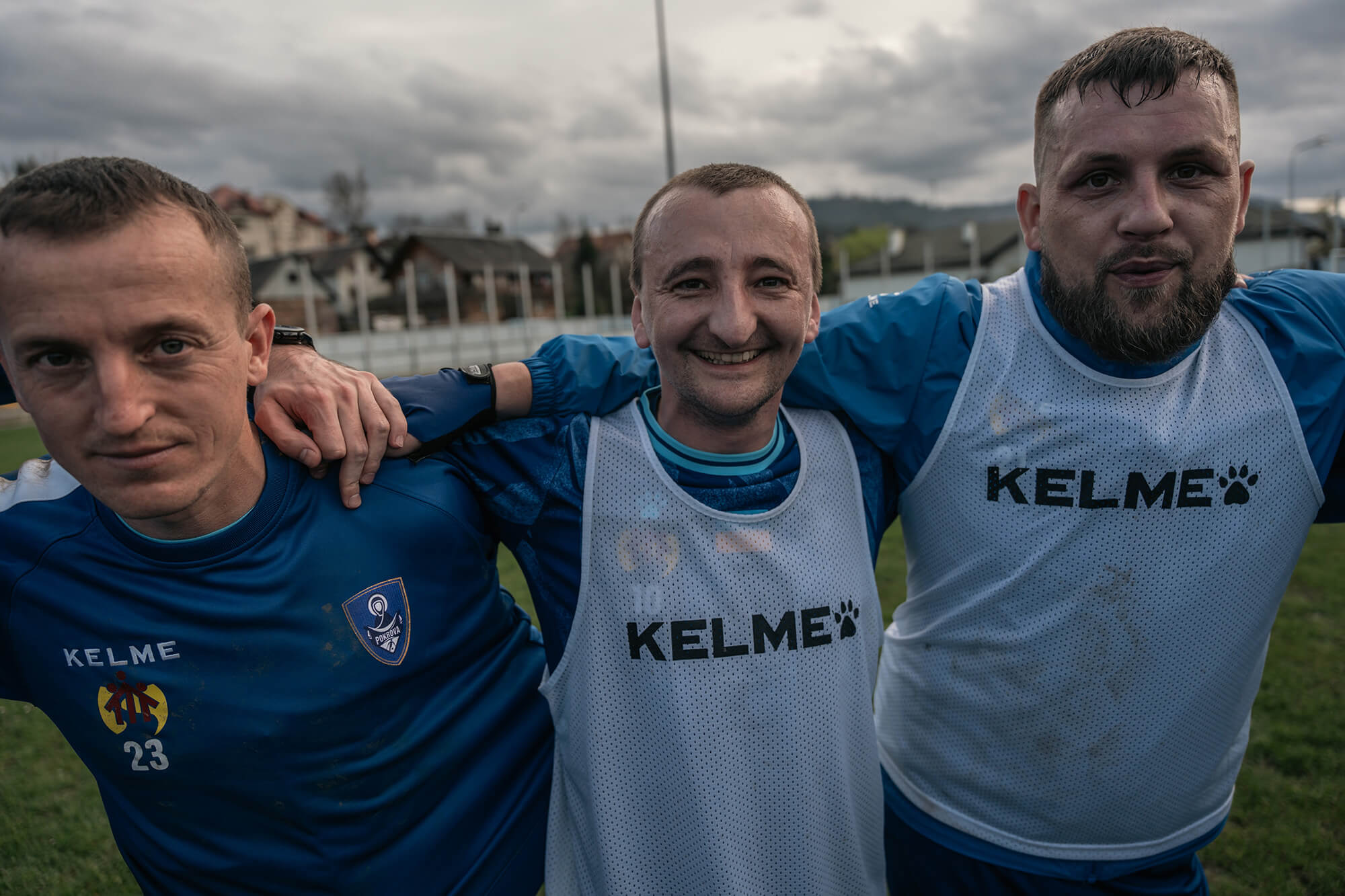
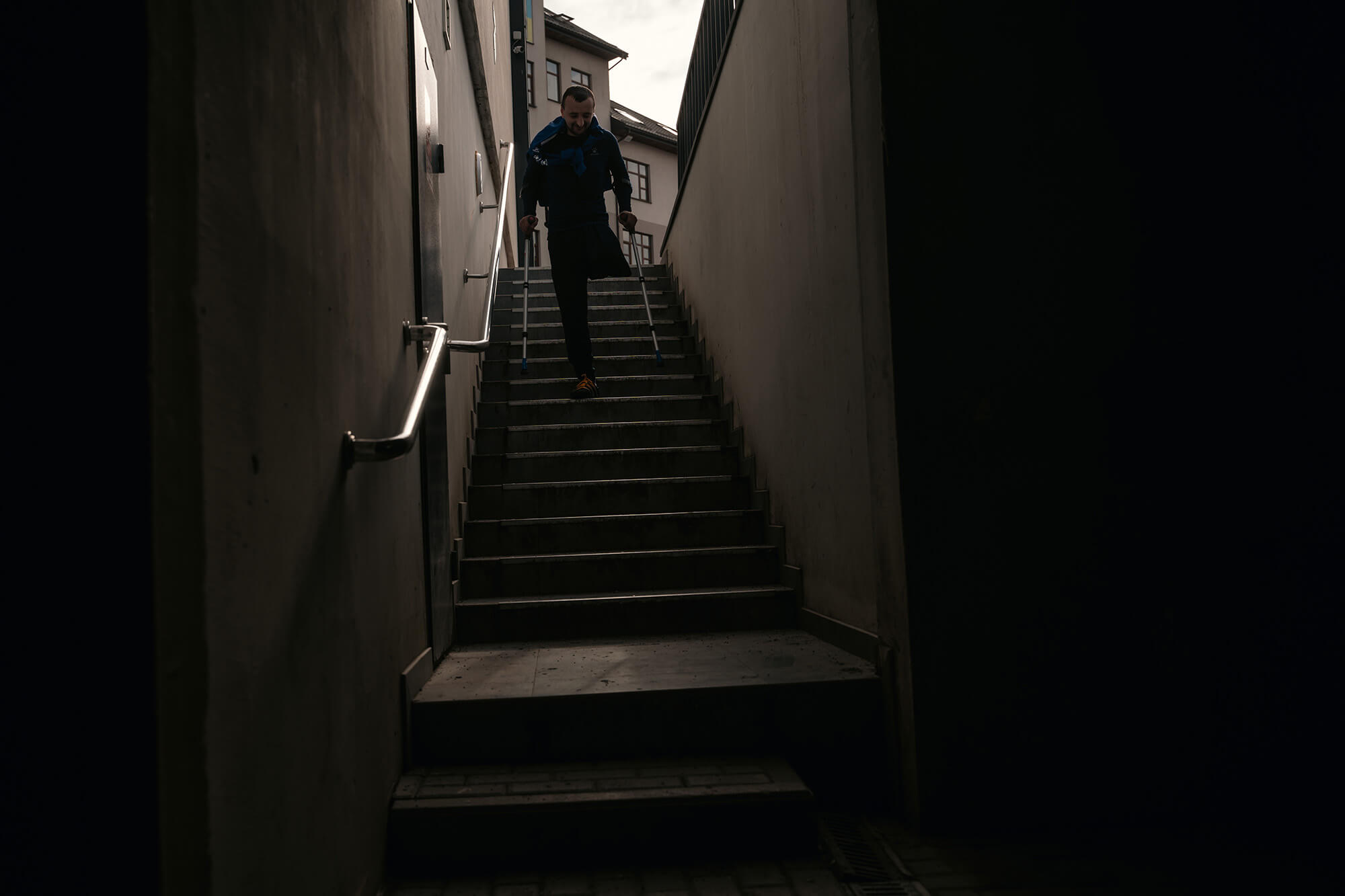
In February 2022, Ivan worked for a company in Obukhiv, a town in the Kyiv region. He was doing his thing—building fireplaces. When the full-scale invasion began, he returned to his village and enlisted at the recruitment office. Ivan wanted to serve in a reconnaissance unit. The recruiters considered his preference and soon invited him to join the 10th Separate Mountain Assault Brigade “Edelweiss.” His first position was a squad commander, and his last was platoon sergeant major.
Ivan spent almost a year on the “zero line,” but he says it’s “normal” for members of assault units. He was injured near Rozdolivka in the Bakhmut region and had his leg amputated. After his time in hospitals, Ivan underwent rehabilitation at the Halychyna center.
When asked about how he found the team or if perhaps the team found him, Ivan says with a chuckle:
“I can tell you exactly how it happened. I stepped out for a smoke, and before I knew it, they’d bundled me into the van and whisked me away. And there was this game going on. I watched it, then another, and another, until I found myself joining in. At first, we moved like turtles. ‘You received the ball? Great, you’ve got it. Now train harder, learn more, and demand more of yourself.’”
Ivan was into sports even before the war, though he wasn’t a football player. Instead, he gravitated towards track and field athletics and running. Yet, by chance, Ivan became the soul of Pokrova. He also admits he’s found solace in his team.
Walking beside him is Petro Kornaha. He never really played football except for occasional games in his village. Kornaha commutes from Nemyriv to Lviv for practice. His entire community roots for him when he goes to tournaments.
He says he ran away from home to enlist, even though he never served in the army. Before the full-scale invasion, he had worked as a seasonal laborer abroad, and on February 27, 2022, Kornaha was mobilized to the 63rd Separate Mechanized Brigade. He served in the Volyn region, Voznesensk, Mykolaiiv, and Bashtanka. On their way to Mykolaiiv, he and his commander came under fire. His leg was blown off.
A former artilleryman, Kornaha now plays amputee football, relying on his surviving leg where titanium bone plates were inserted. He had several surgeries and spent six months in a wheelchair. One day, he watched Kashula’s interview and gave Melnyk a call.
“He was like, ‘We’re looking for guys like you, and there you are!’” Kornaha recalls. “My only worry is that someone might kick me in the leg. I know all too well: if one screw shifts, God forbid, I’ll be back in the wheelchair.”
Unlike Terletskyi and Kornaha, Yaroslav Kachmar had played football before the full-scale invasion. He joined Pokrova later than the others and had only been training for a month. In October, when he was still “on his own two legs,” he played in a game in the Rohatyn district championship in his native Ivano-Frankivsk region. In November, he was wounded and had his leg amputated. Remarkably, by March, he had already joined the team and fulfilled a poignant mission: He walked onto the field alongside players from Shakhtar Donetsk—one of the most famous and successful Ukrainian football teams—in the 21st round of the Ukrainian Premier League and, with a careful kick of his remaining leg, he started the Shakhtar vs. Mynai game.
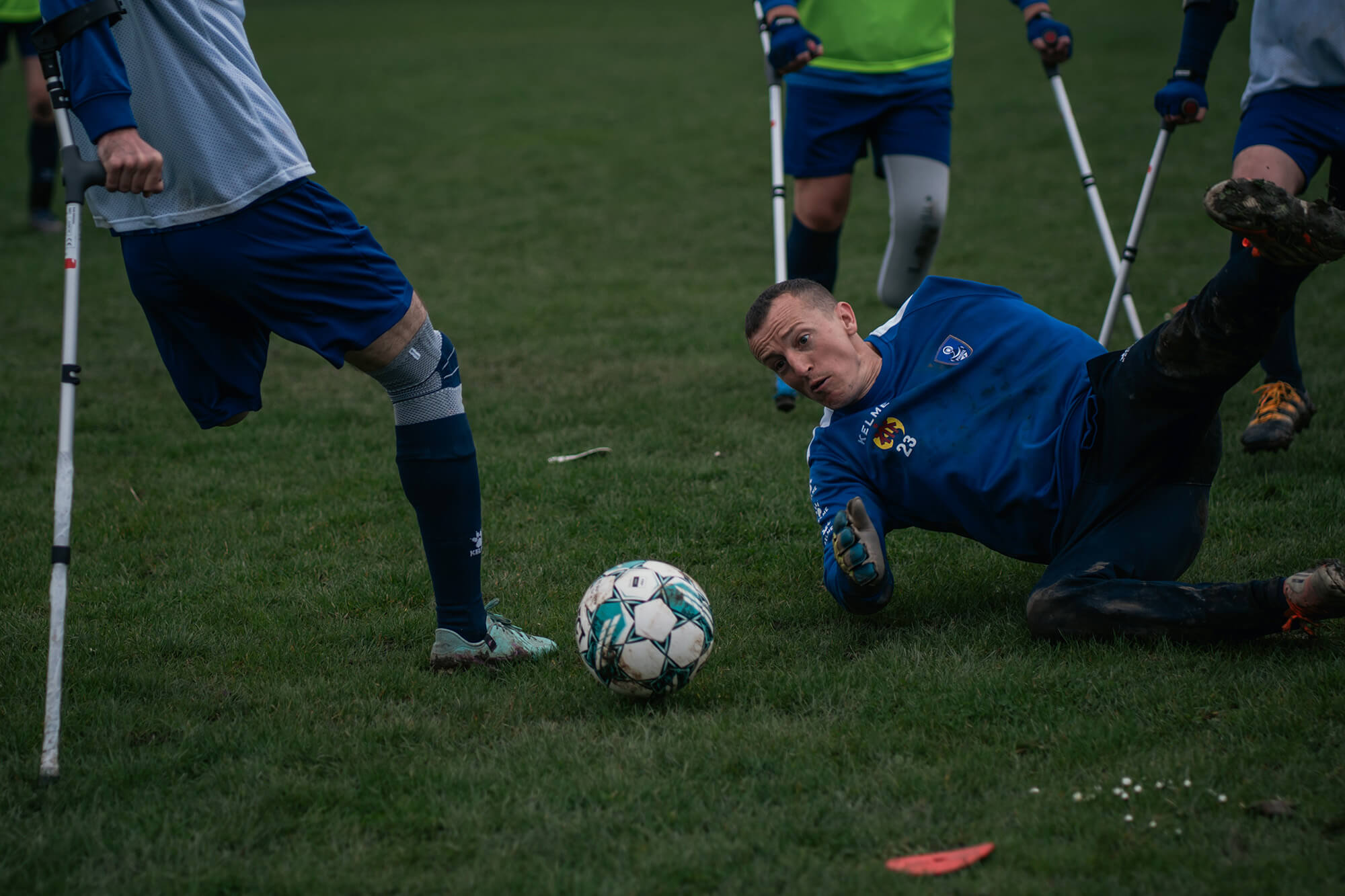
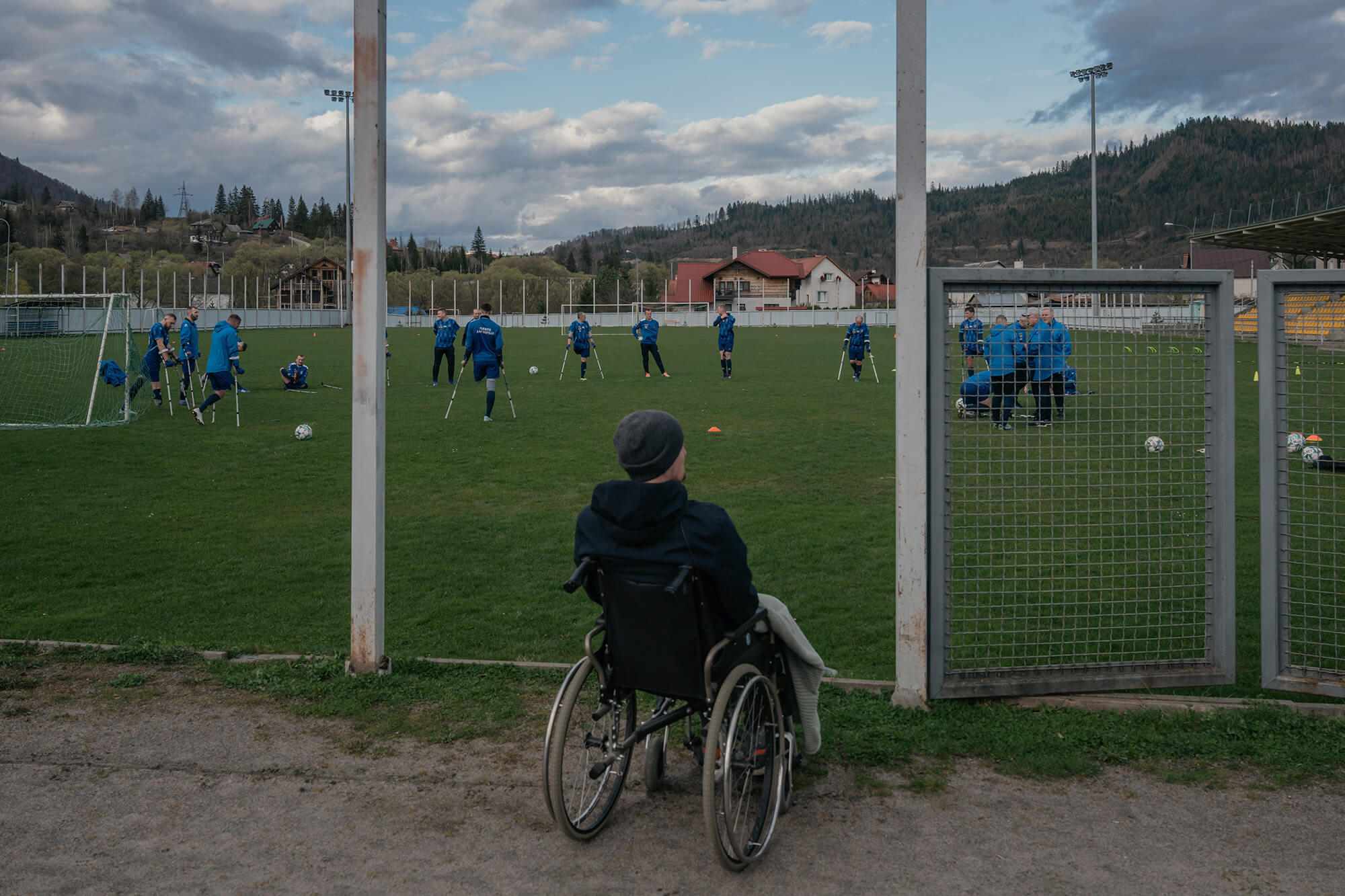
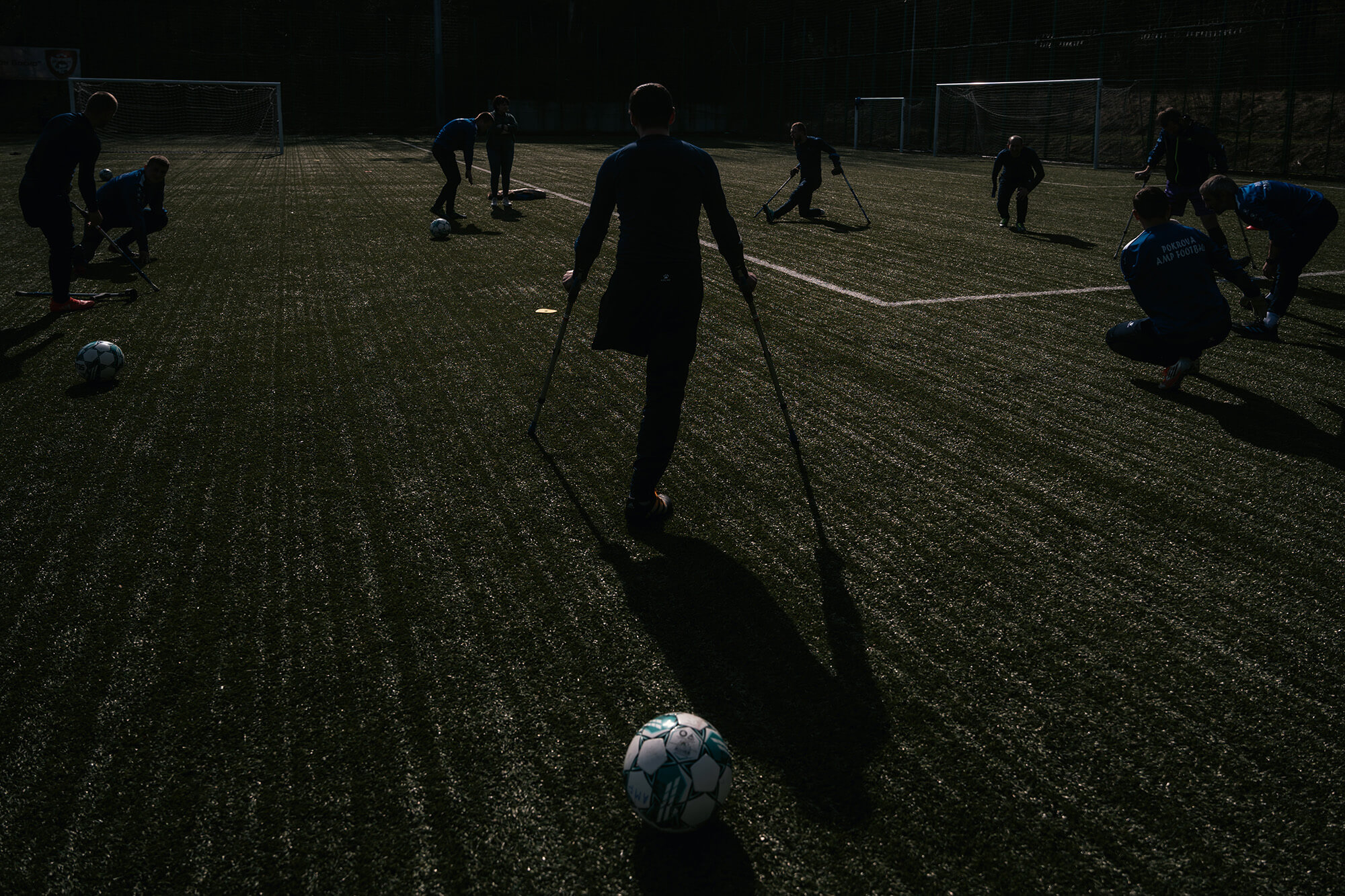
“Call sign ‘Ortez.’ Fighter of the 68th Separate Oleksa Dovbush Jaeger Brigade. Yaroslav was courageously defending our country when he sustained a serious injury near Izium. Thank you, Yaroslav! Glory to ZSU, the Armed Forces of Ukraine! Together towards victory!”The announcement echoed from the stadium’s PA system. As the commentator’s voice faded, the veteran in the center of the field leaned into his crutches and kicked the ball. The crowd at the Lviv stadium erupted into chants of “ZSU! ZSU! ZSU!”
Amidst the cheers, many children, especially boys, enthusiastically joined in.
We pulled it off
They share their own insider jokes: skipping the training camp earns you the title of “draft dodger.” During games, you might hear remarks like, “This is how the two-legged kick. One-legged do it that way.” Or: “What’s wrong, Ivan? Is your leg getting in the way?” Or: “Stop sending in the armless. Give us the legless.”
“I’m so glad I turned to Bohdan when I was searching for a coach and team leader,” Fr. Mykhailo says, standing on the field of St. John Bosco Center, watching a typical Saturday practice in Lviv.
“Glory be to Jesus Christ!” the young men greet him.
“God bless you!” someone calls out from the goal area.
At the age of 22, Melnyk became deputy director of Erudyt, a private school in Lviv. By 25, he’d been appointed director of the Halytskyi Law Lyceum affiliated with Erudyt. People in all kinds of institutions told him he was too young and inexperienced and that he wouldn’t pull it off. Ever since, a lack of experience has never stopped him from starting new things.
He often recalls the anxiety he felt before the first practice on September 12, 2023. Would they show up? Would they stick around? Who would they be? How would they find common ground?
“I was thinking how to give instructions properly,” Melnyk recalls, “so I wouldn’t blurt out ‘rotate your left arm’ only to realize it was missing. I had to handle all that. I had to do whatever I could to make sure they’d come back. I have this photo: September 12, the practice is over, and Fr. Mykhailo and I are standing there happy. At that moment, I knew we pulled it off. Today, it may seem like they’re just joking around. But you have to understand these jokes and how much is behind them. We have a team of highly motivated guys. No one pressured them into joining. They simply became intrigued. Each of them has their own reason for being here. And we’d be wrong to assume that all of them are eager to do anything after their injury.”
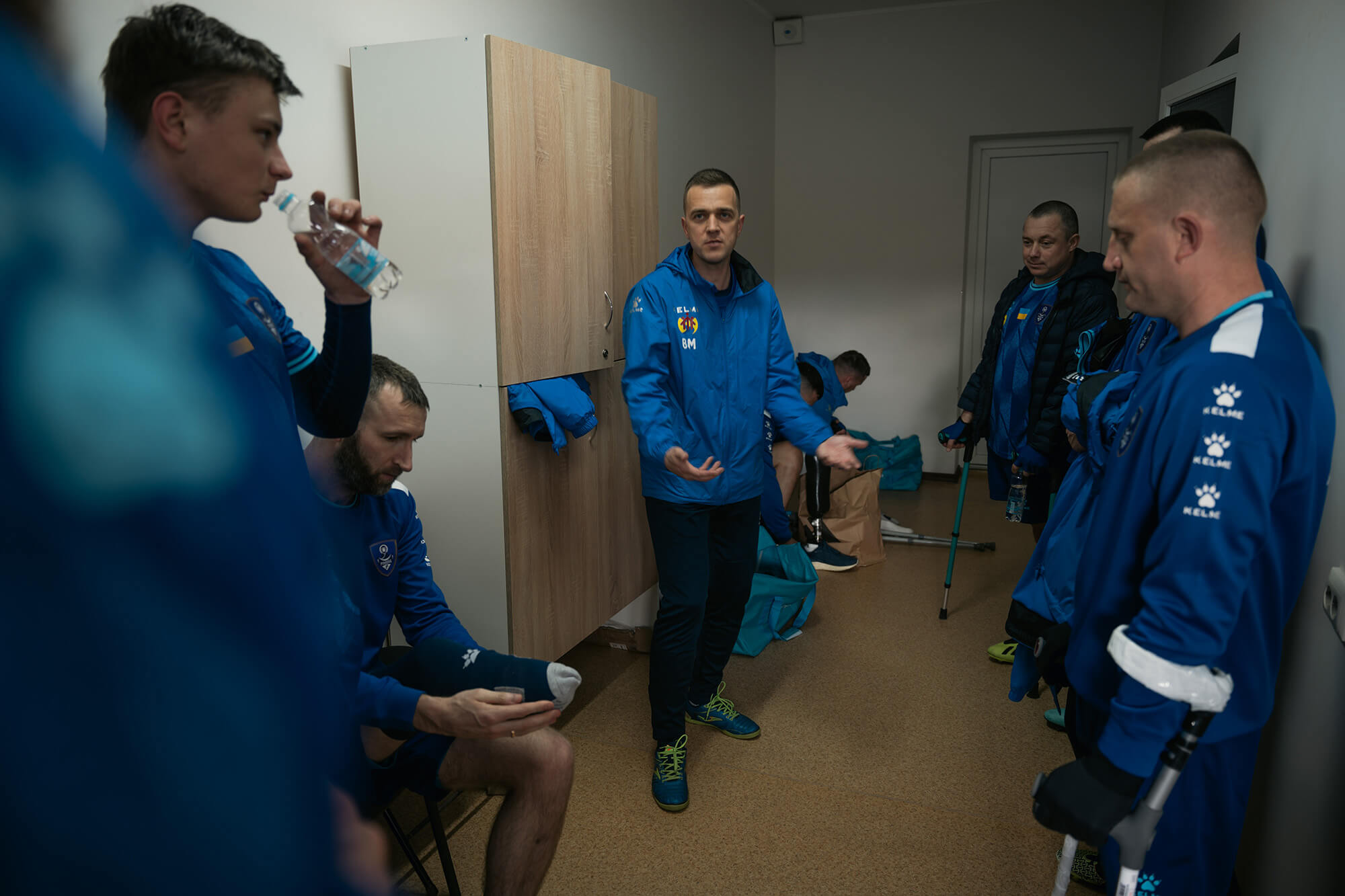
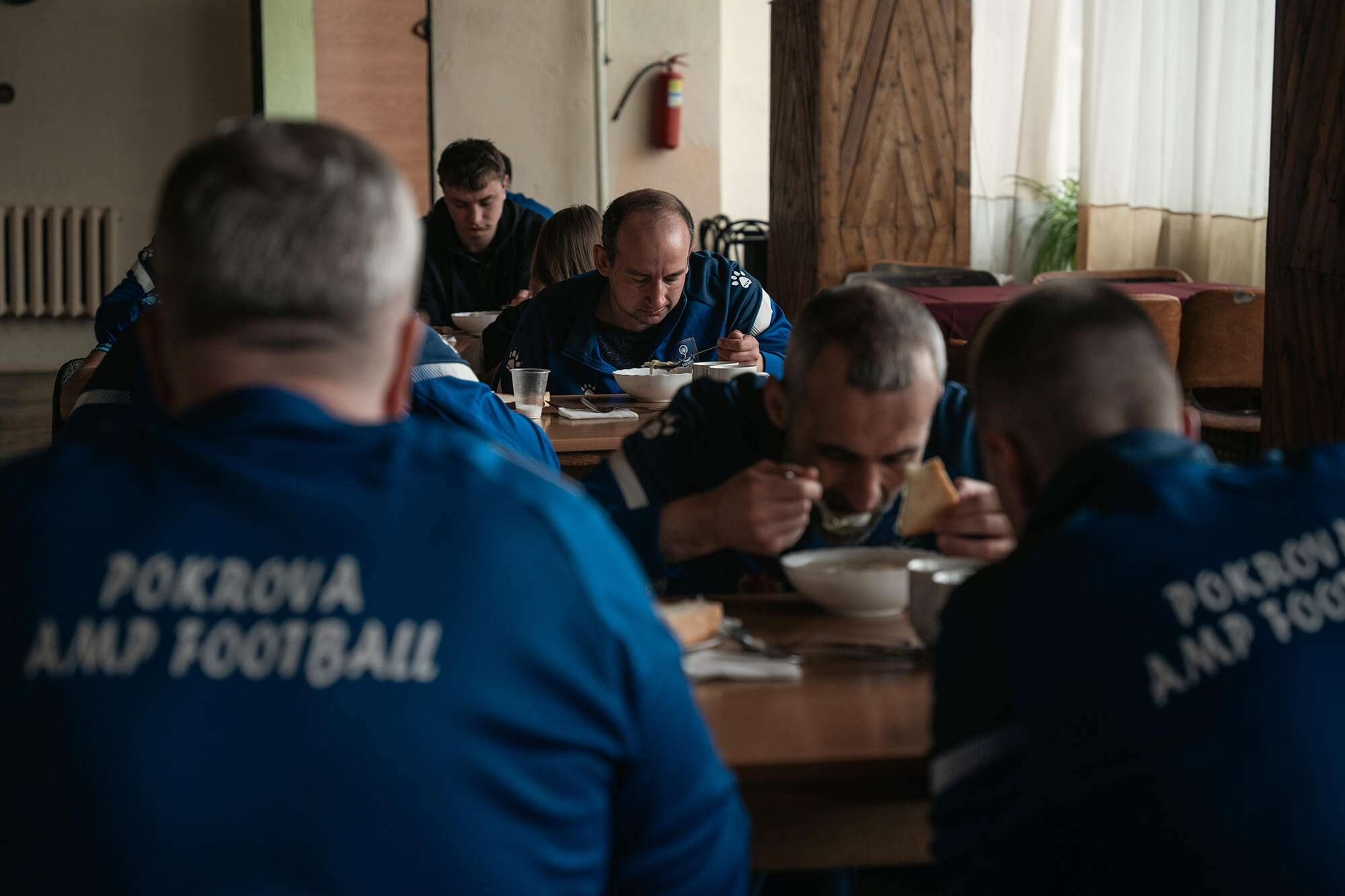
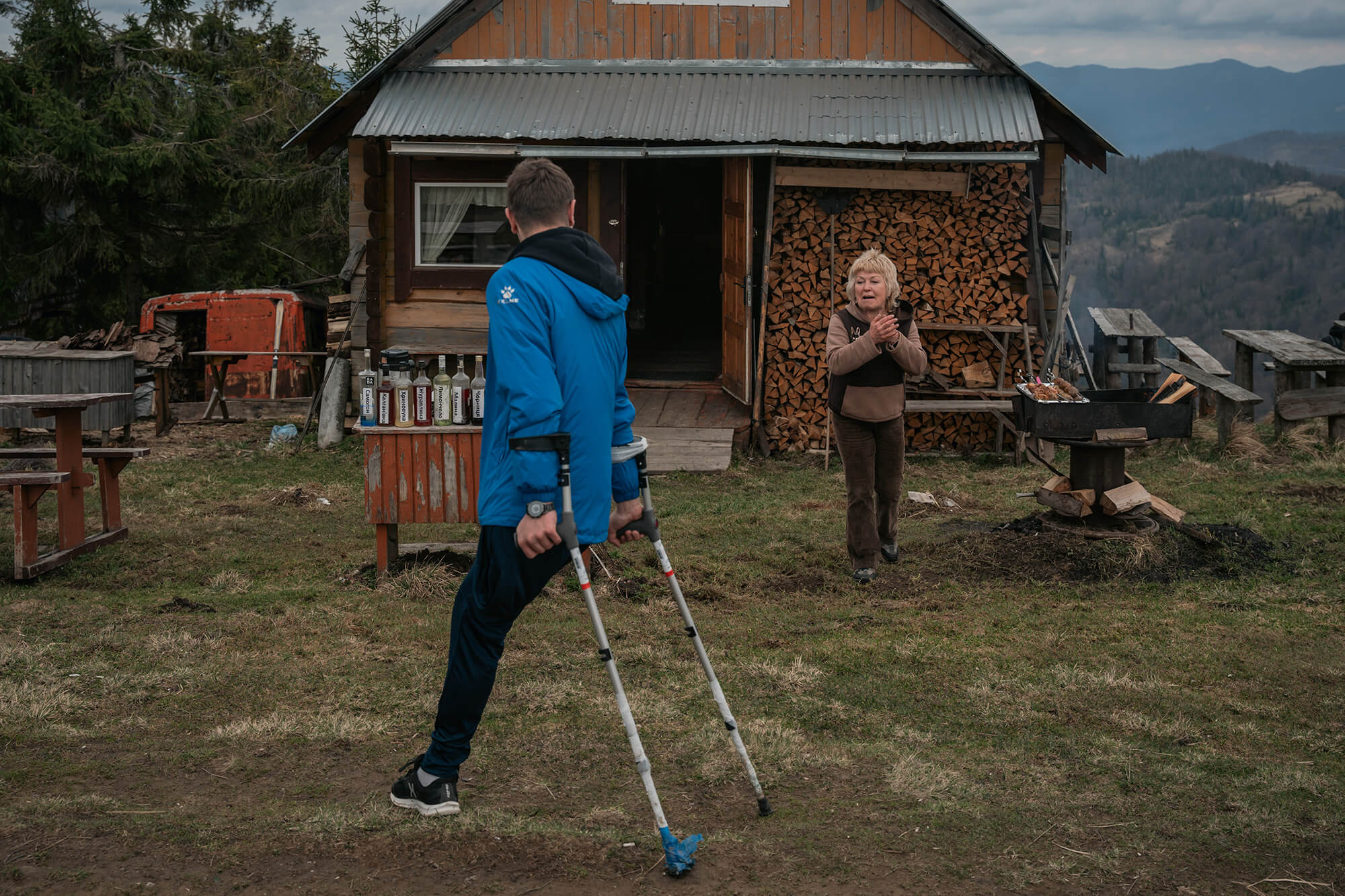
They are happy to have assembled such a fantastic team, with Nazar Rusetskyi as the coach and Oles Vasylyshyn as the doctor. The team is actively looking for a sports psychologist and a goalkeeper coach. There’s also Fr. Taras who serves as a spiritual counselor, as well as a friend and a therapist in times of need. The Salesian congregation’s development department provides financial backing for the team. They seek out investments, grants and various opportunities.
“Even covering transit fare matters,” Melnyk says. “Not everyone has a discount. They were on the frontlines just yesterday: this one lost his military ID during the evacuation, another is still undergoing a military physical examination and has yet to be granted a disability status, and yet another is paid a meager salary of five hundred hryvnias. I don’t want these guys to feel a lack of anything. I don’t want them to skip their coffee because we don’t have money. Each of them has a complex personal story. You must empathize with them, offer support, and provide guidance.”
Today, the Pokrova team has over 20 people on its roster. Eighty percent of them are soldiers with amputations without any experience in amputee football. Shortly after it was established, a few athletes from Ukraine’s national football team for people with disabilities joined Pokrova. At first, one could easily see the difference between the way the experienced footballers played vs. the veterans, but over time, the veterans have honed their skills with the ball. It’s also important to make sure that Pokrova can welcome both those who want to play amputee football professionally and those who have never participated in tournaments but would like to rediscover the joy in life through football. It’s essential to stick to the original principle: The primary mission of this whole undertaking is rehabilitation.
As the boys dash across the field, their crutches gleaming, Melnyk says, “Lviv should become a hub for all-Ukrainian amputee football.” The Salesians are planning to build a large complex outside the city, with its own football field and a healthcare rehabilitation center.
“Families would have the opportunity to visit the players at the center,” Melnyk says. “We could also arrange coach courses and training camps on-site. We plan to develop children’s and women’s amputee football as well.”
Meanwhile, FC Shakhtar has asked them to share their experience establishing such a team. Young men with amputations are already training with FC Dnipro in Cherkasy, while FC Kryvbas in Kryvyi Rih is also considering forming a team. The momentum of this movement is unstoppable.
In March, Pokrova played in the Polish Extra League of the amputee football championship. In Wroclaw, the Ukrainian team stood out among others as led towards victory by true warriors—in the literal sense of this word. Crossing the border is a hassle for the players as the team has quite a few military officers who are still considered active duty alongside civilian members. Each trip requires coordination with three ministries. Nevertheless, in June, the Pokrova players will travel to the European Championship in France as the core of the national team. The veterans will compete against strong opponents: France, Spain, and Belgium. But when has anything like this stopped warriors in their pursuits?
It’s not just the players who will travel to Evian, a town on the banks of Lake Geneva in France. The entire team will make the journey. They’ll go there to make their voices heard, explains Melnyk.
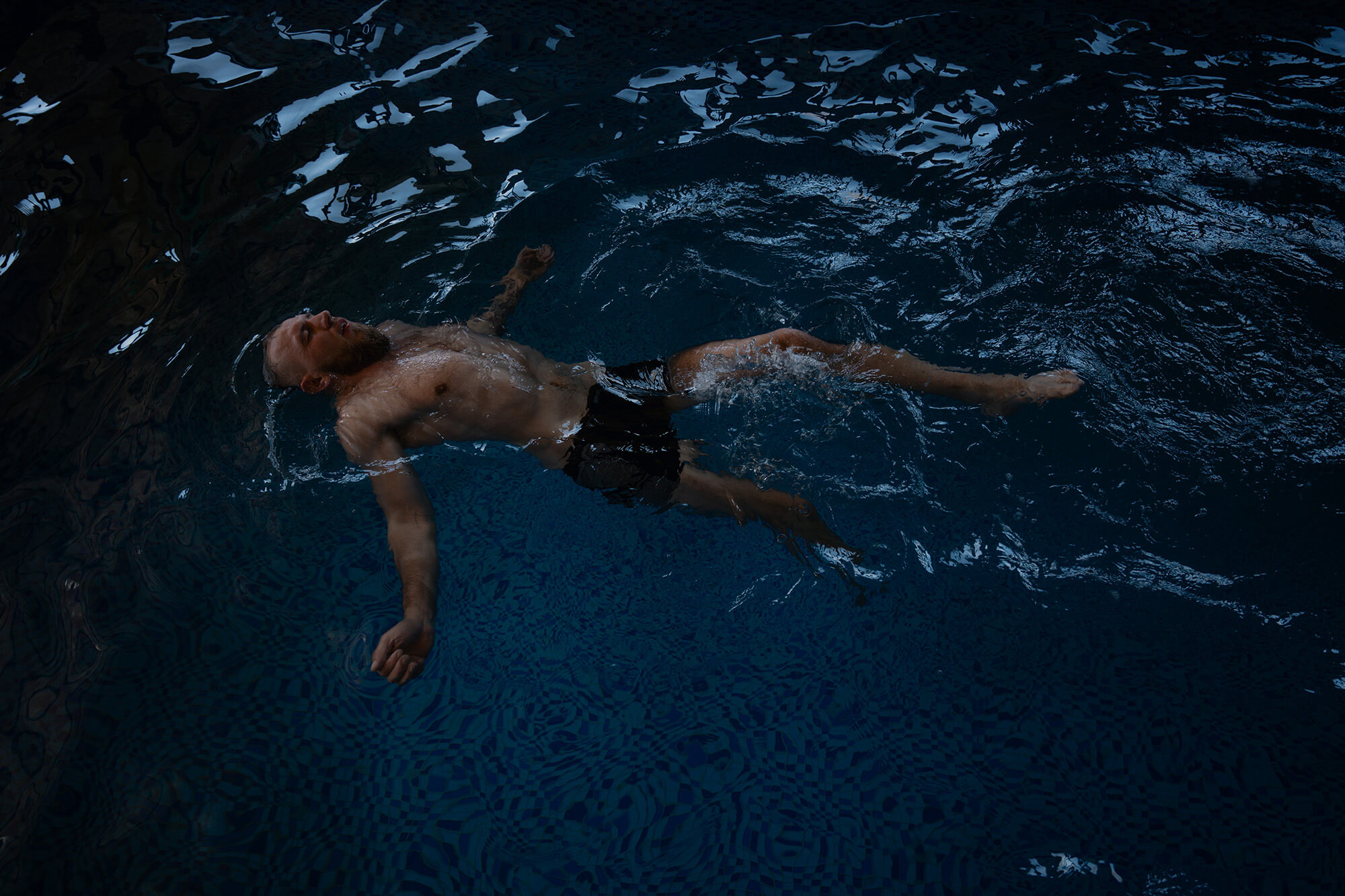
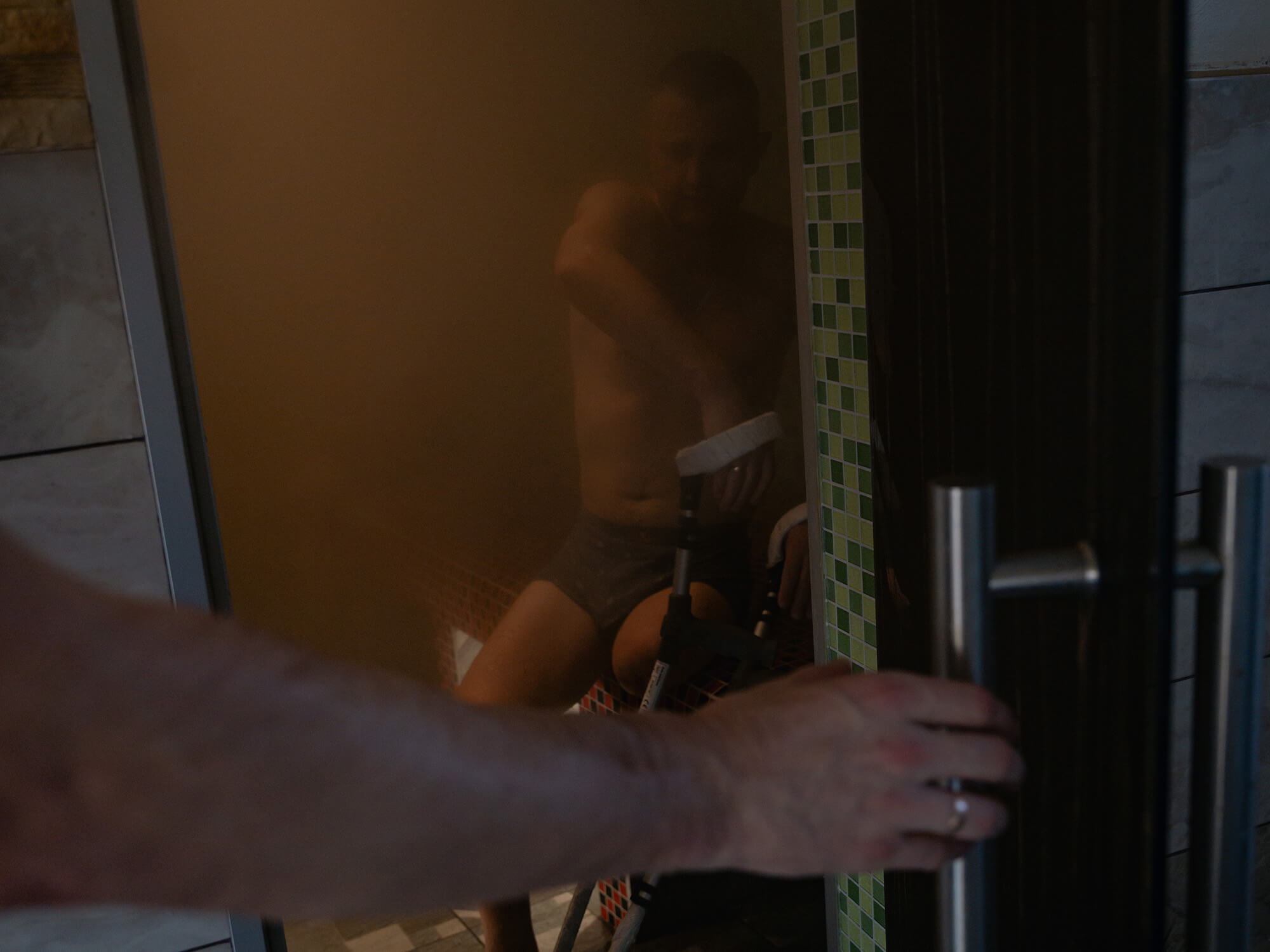
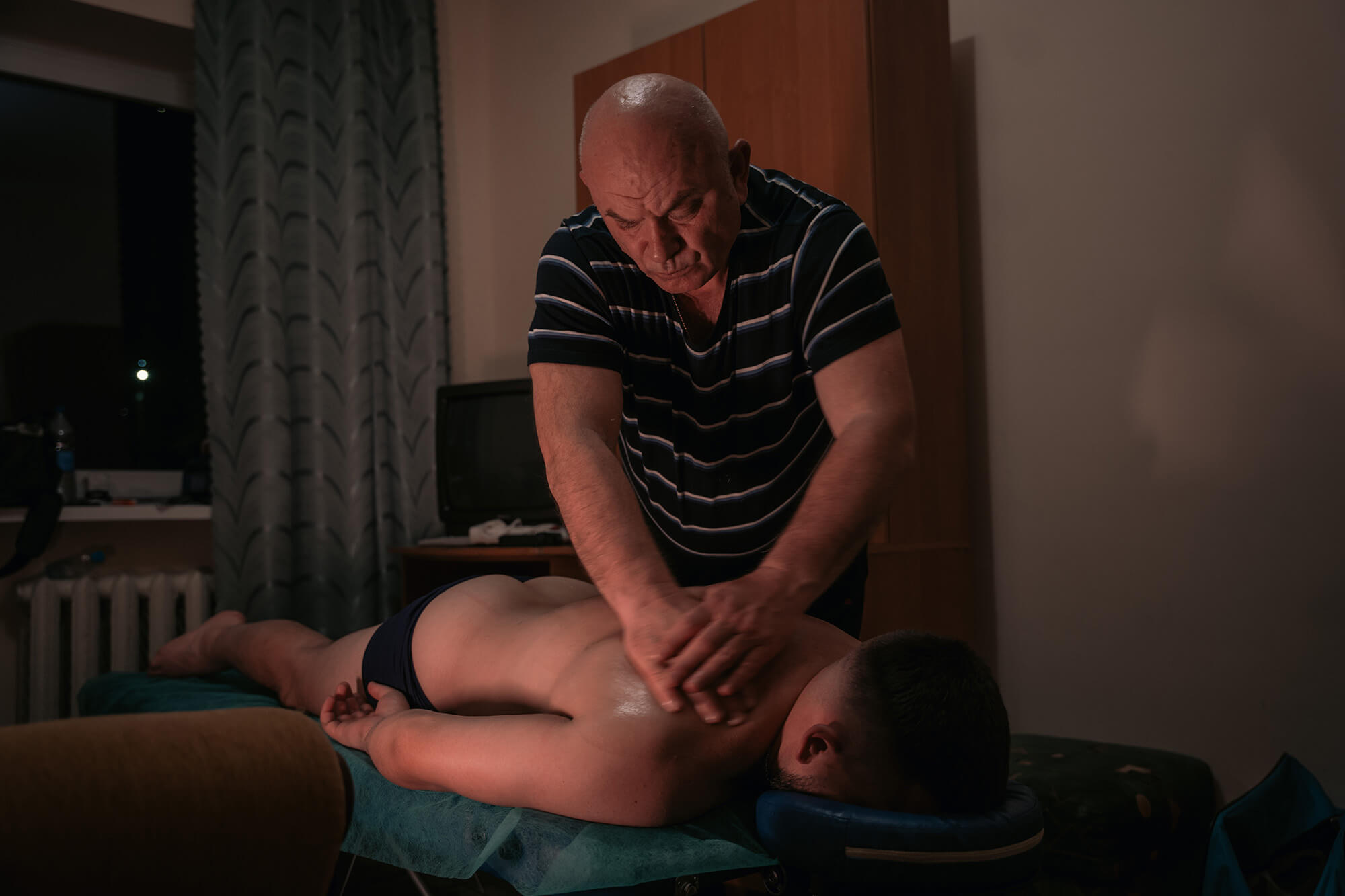
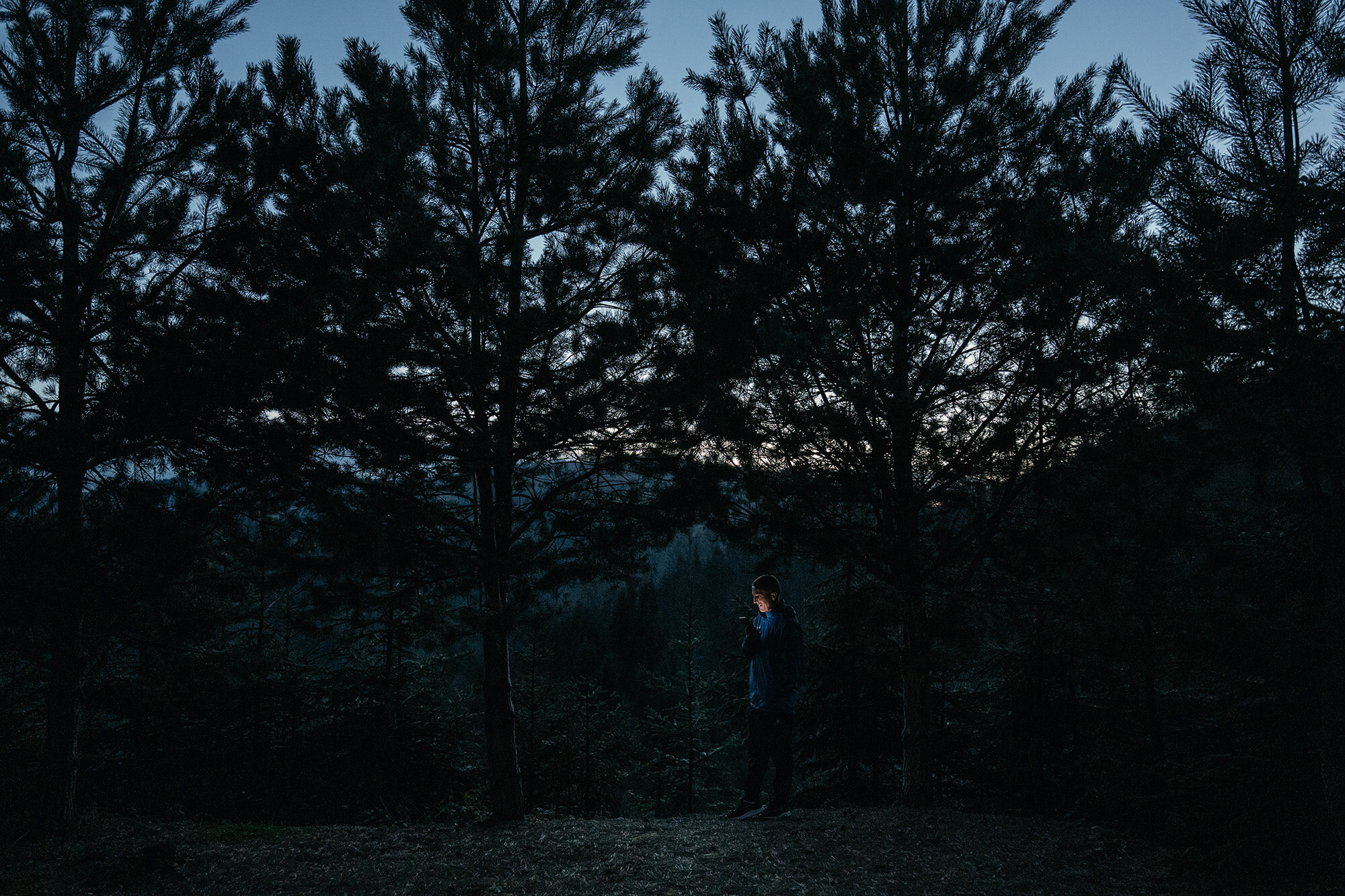
But before their trip to France, the team will go to the Carpathians: to practice, to unite behind a shared cause, to see the world—and to share jokes and laughs. To strengthen their spirit. To rise high above their injuries and pain—and never fall.
*
“What am I feeling?” Fr. Mykhailo Chaban stands on the sidelines of the stadium in Kryvchytska Doroha in Lviv, smiling towards the goal area. Sometimes, he himself dons the uniform and stands in the goal box when the junior team is playing. “I’m happy we pulled it off. We wanted to establish a team—and we did it. We wanted to participate in the championship—and we did it. We wanted to inspire other cities to form their teams—and the process has started. This kind of sport resonates with the public because it’s a neat form of rehabilitation: being among other people, having fun playing football, enjoying life, and making plans for the future. This is our Salesian community’s mission, our calling : working with young people and helping those in greatest need. This spirit s lives in our work with these boys. God shows them: I’m with you, I’m beside you, I’ll never abandon you.”
* A Salesian monastic congregation named after the French bishop Saint Francis de Sales.
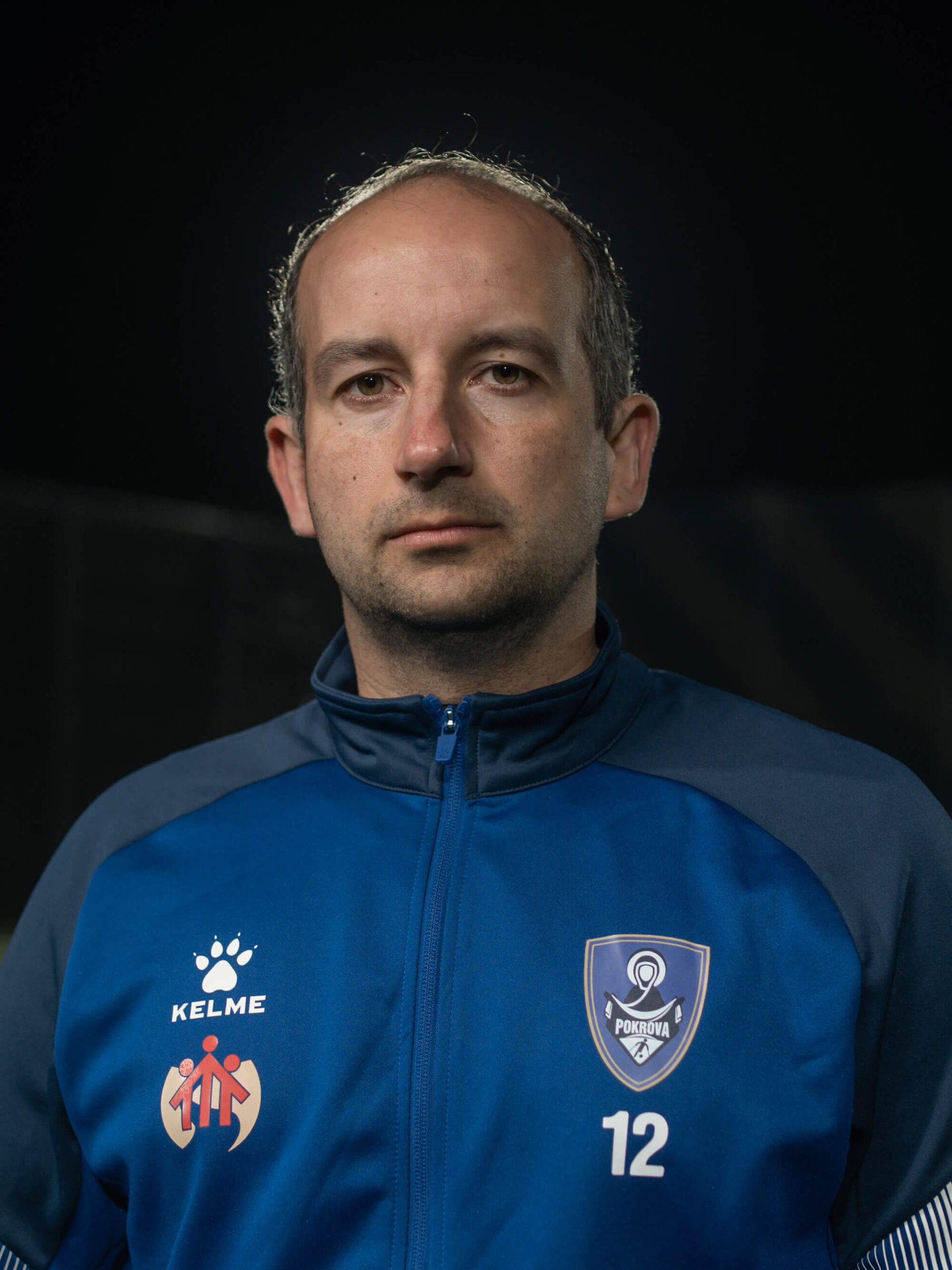
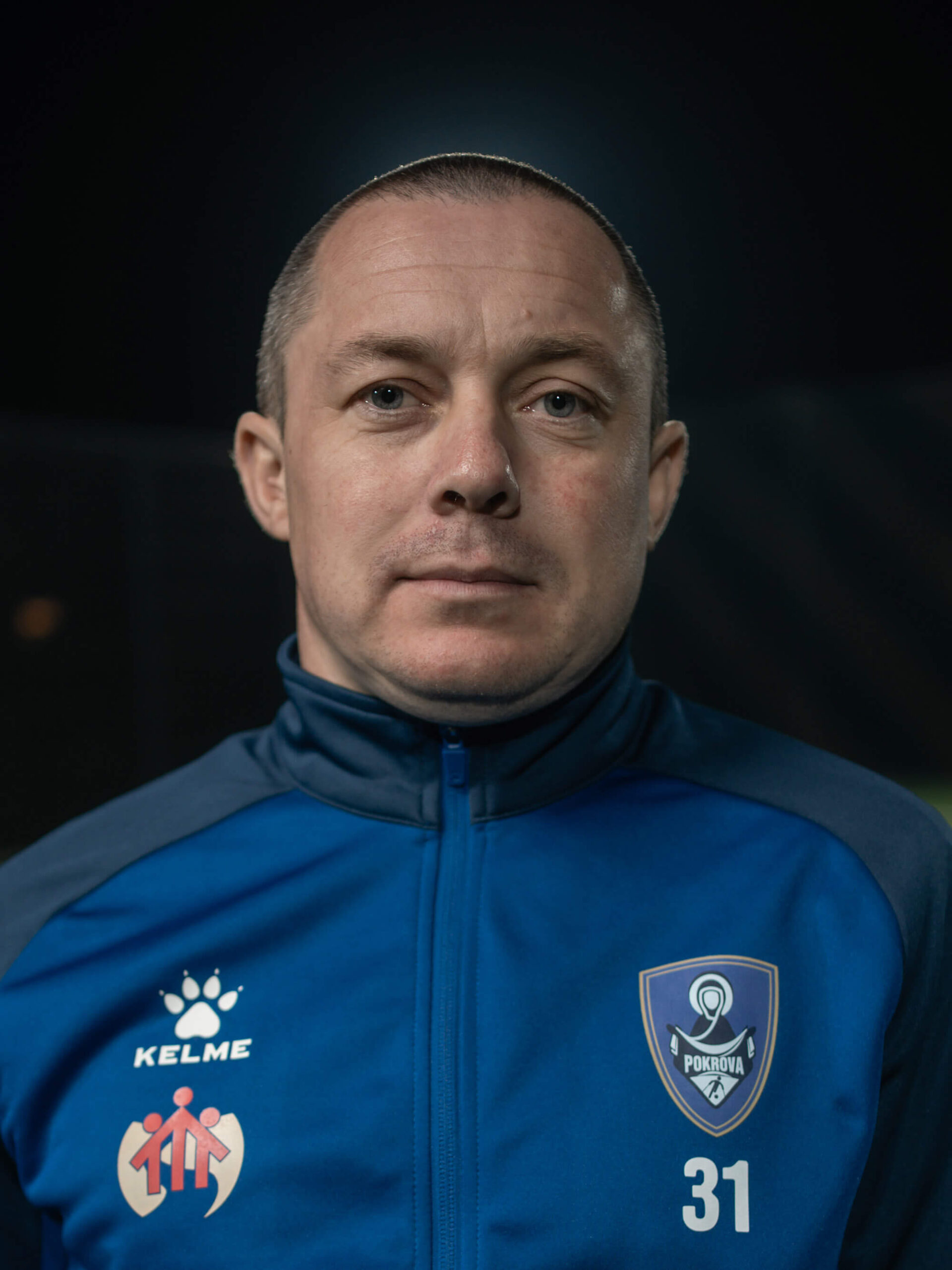
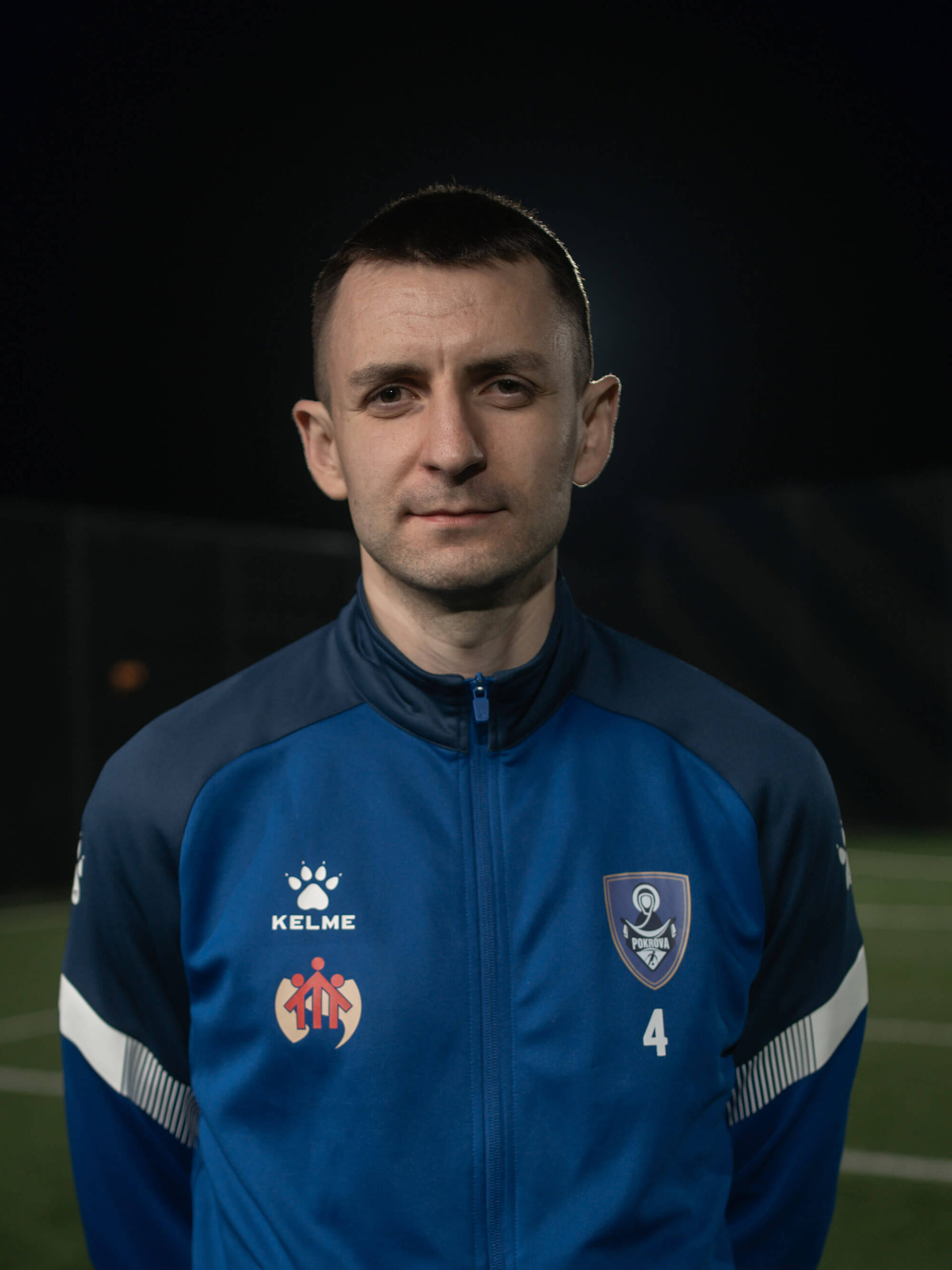
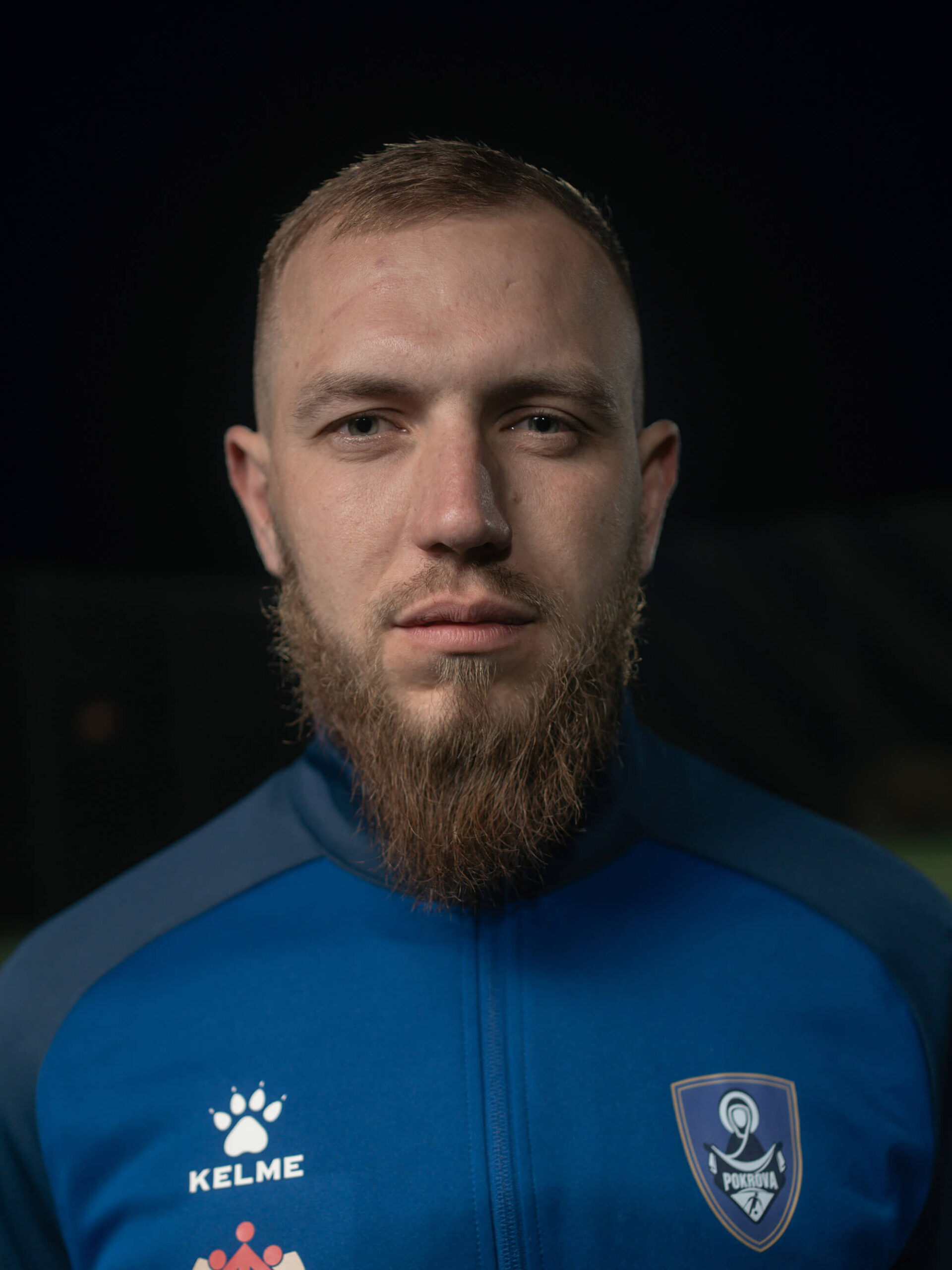
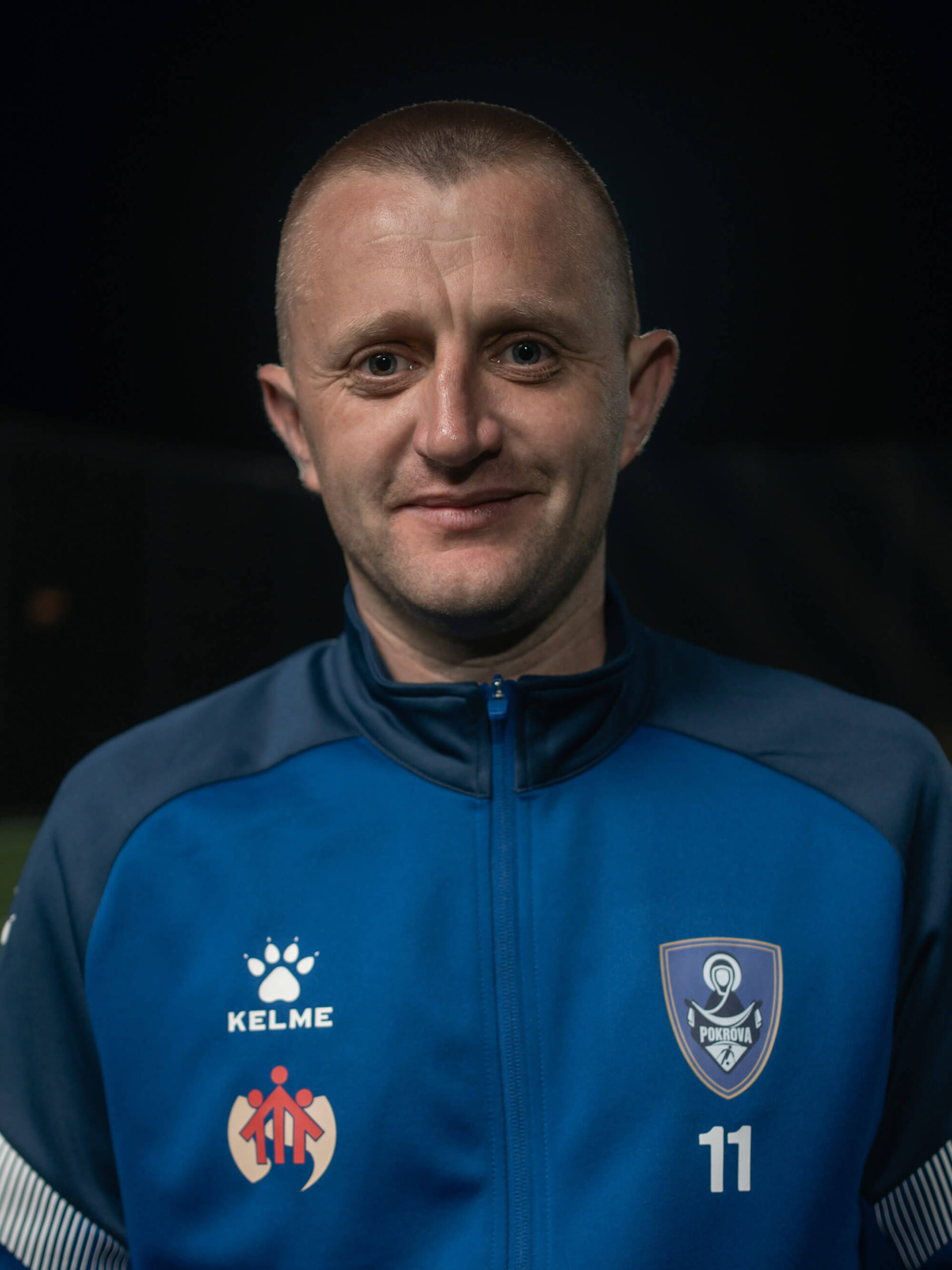
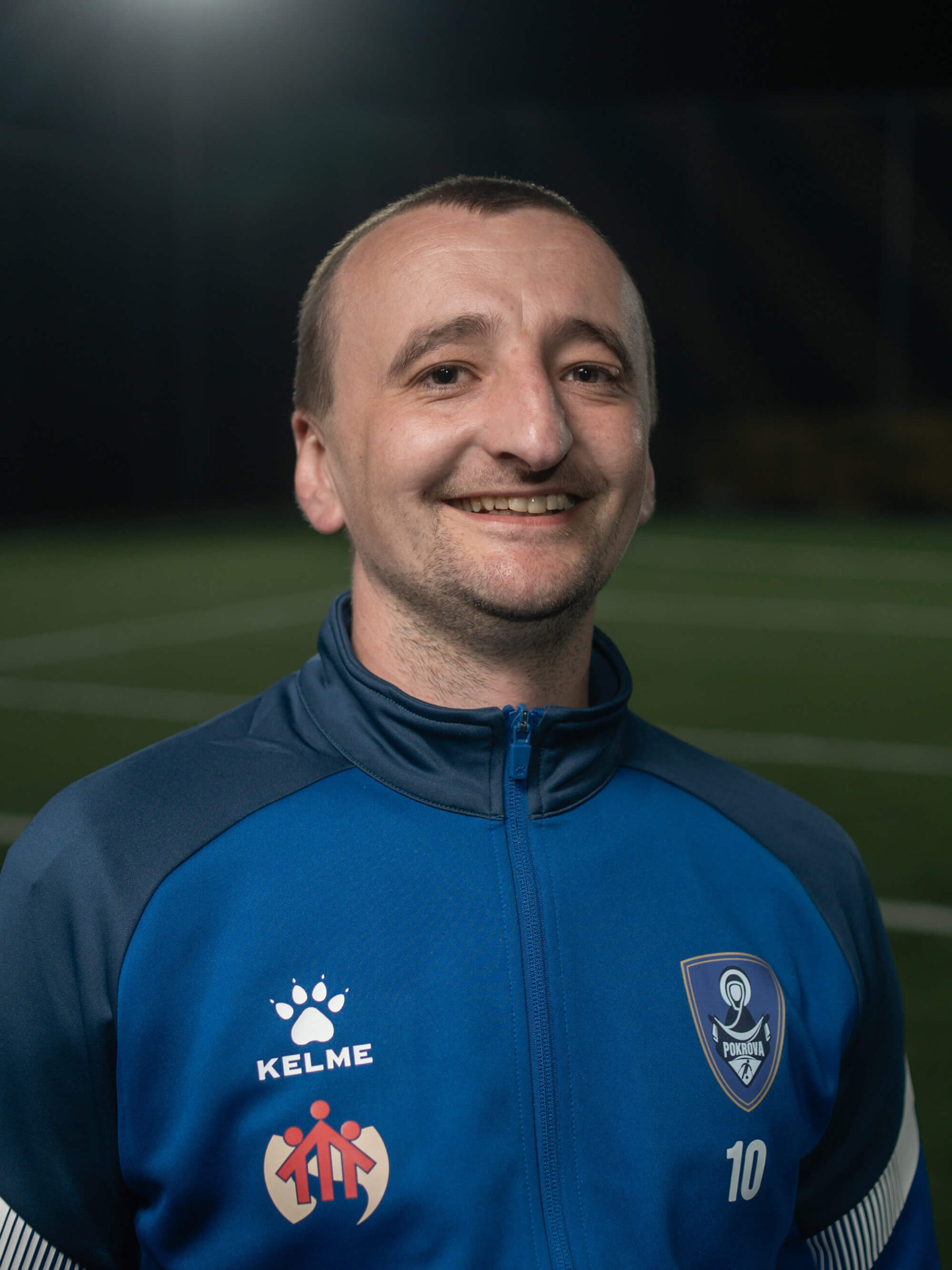
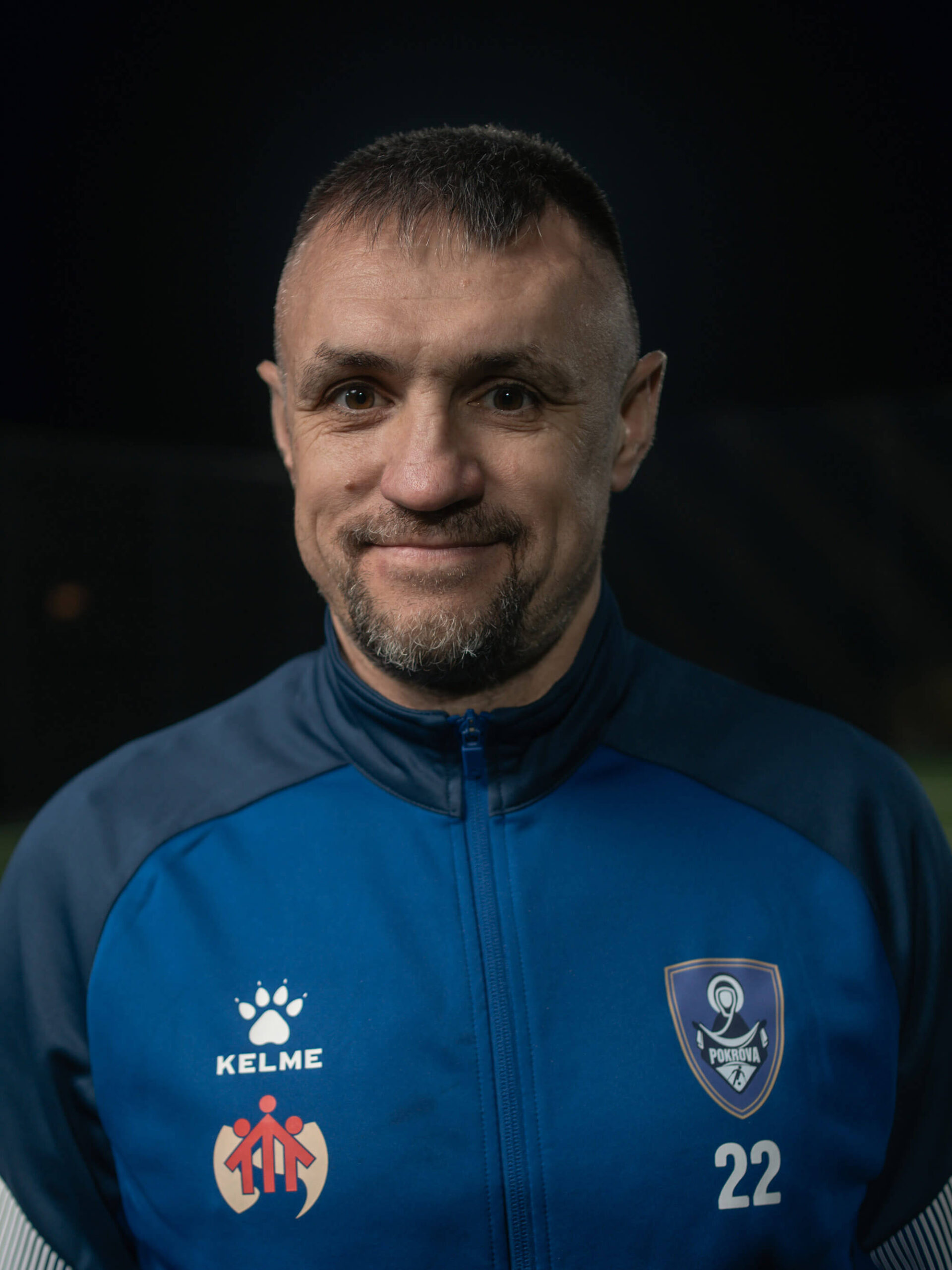
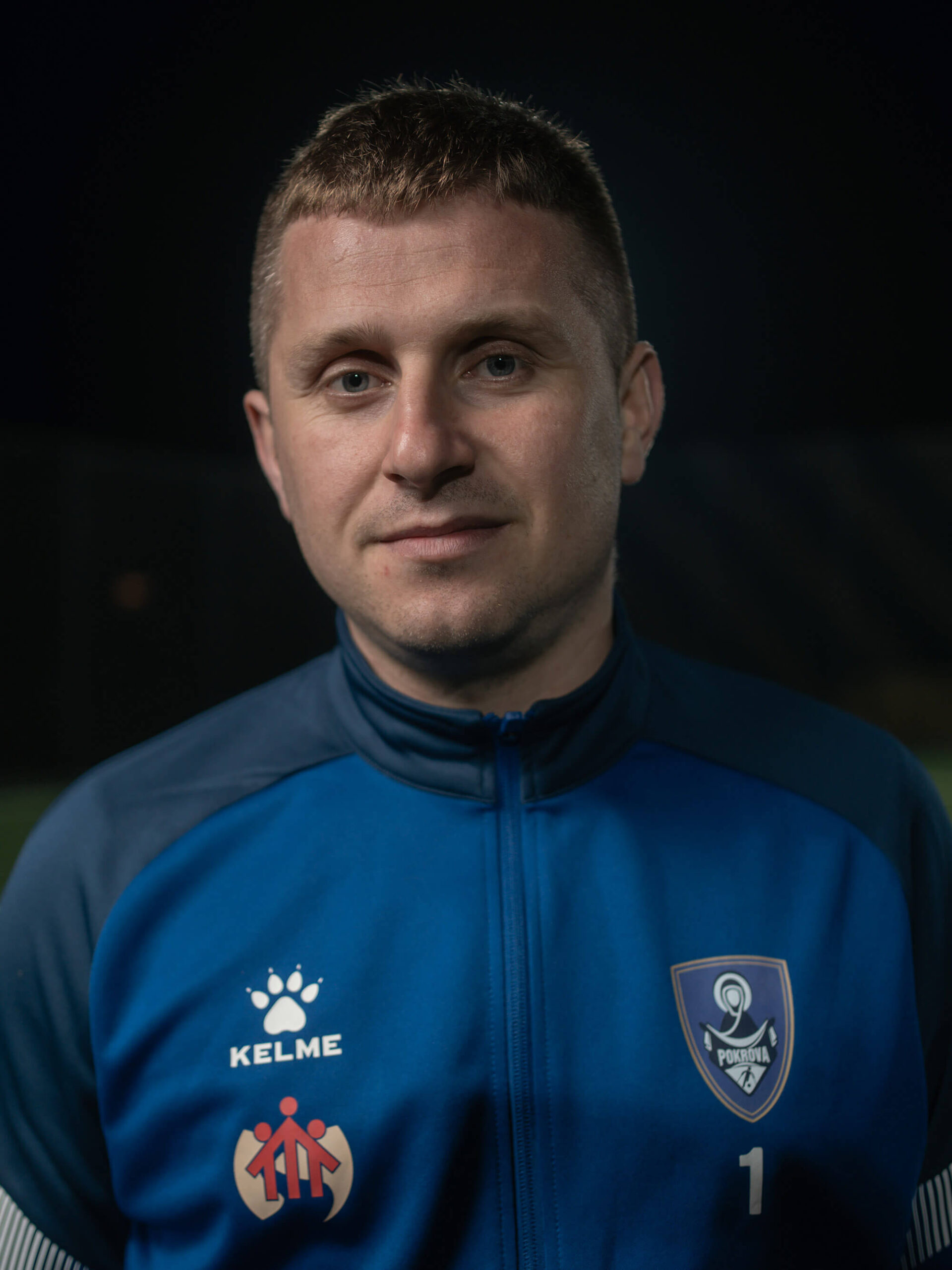
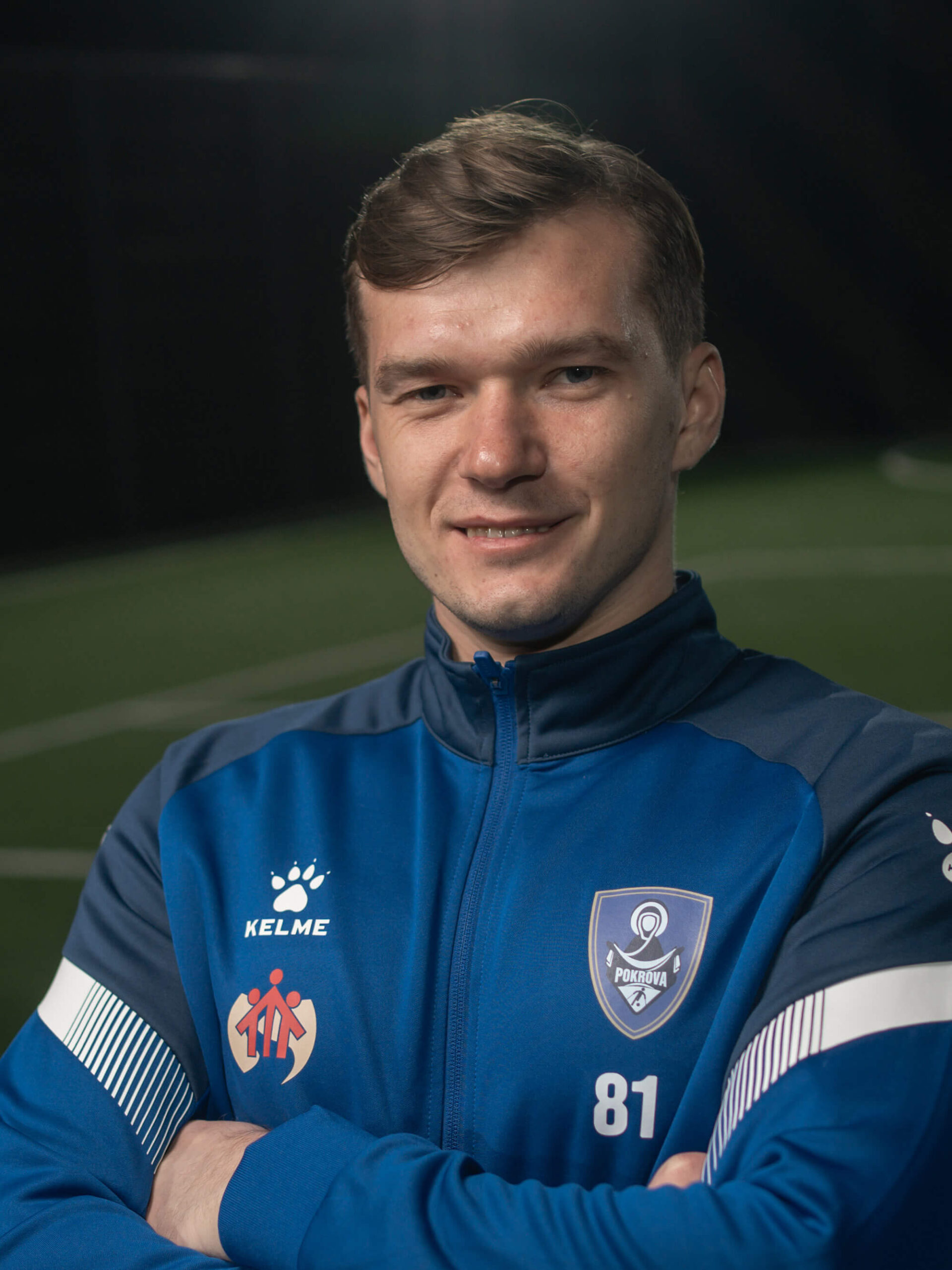
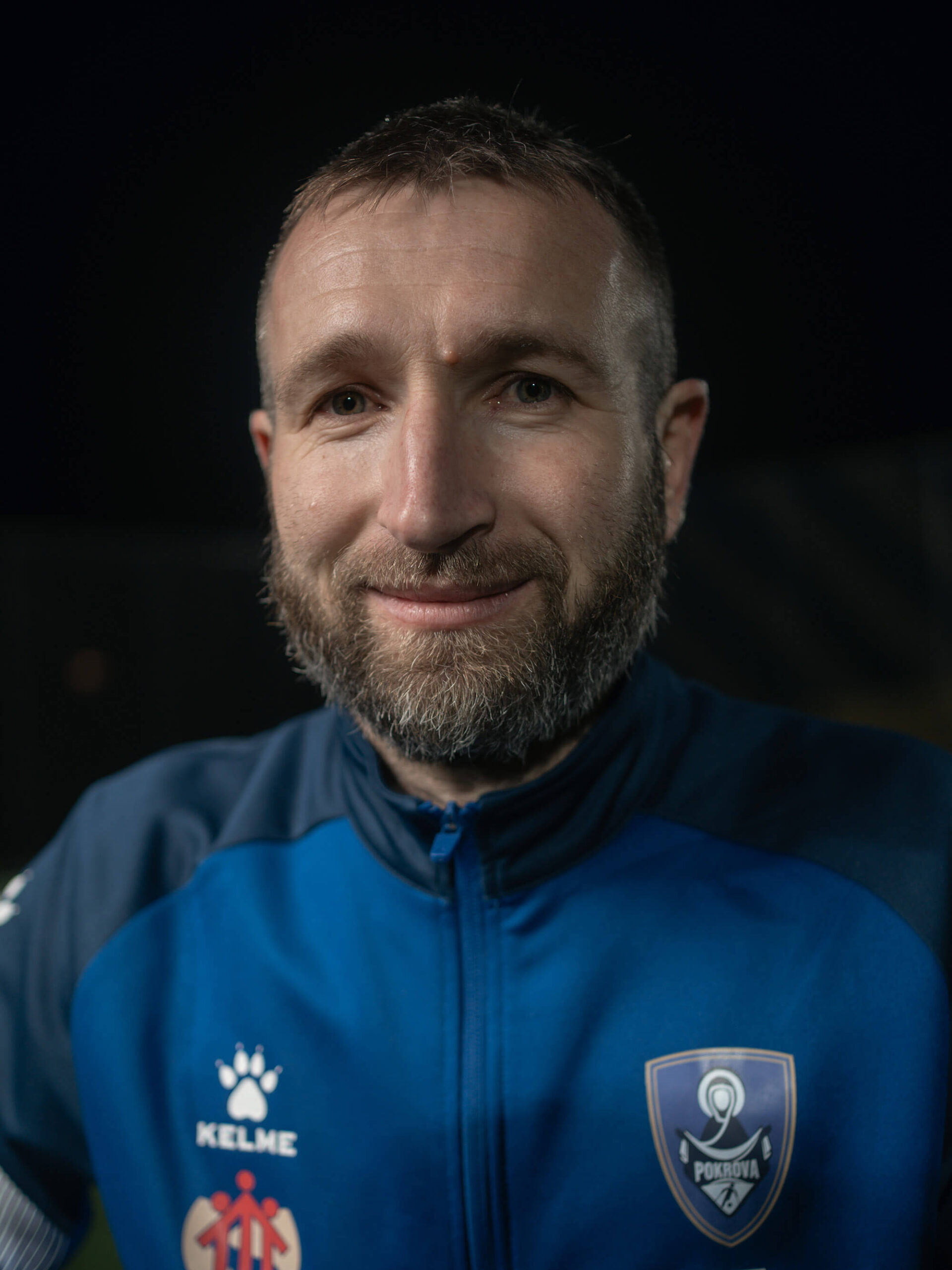
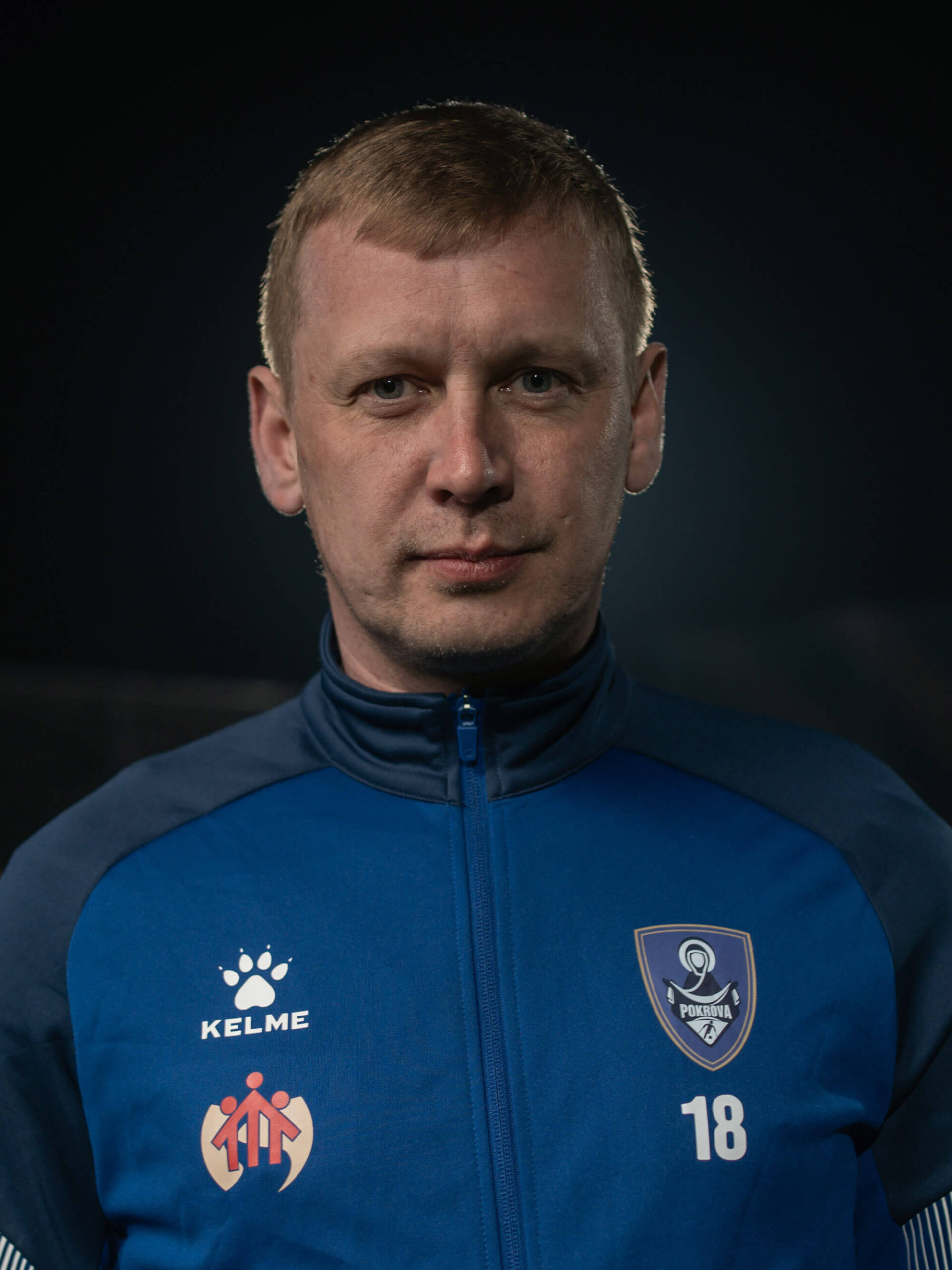
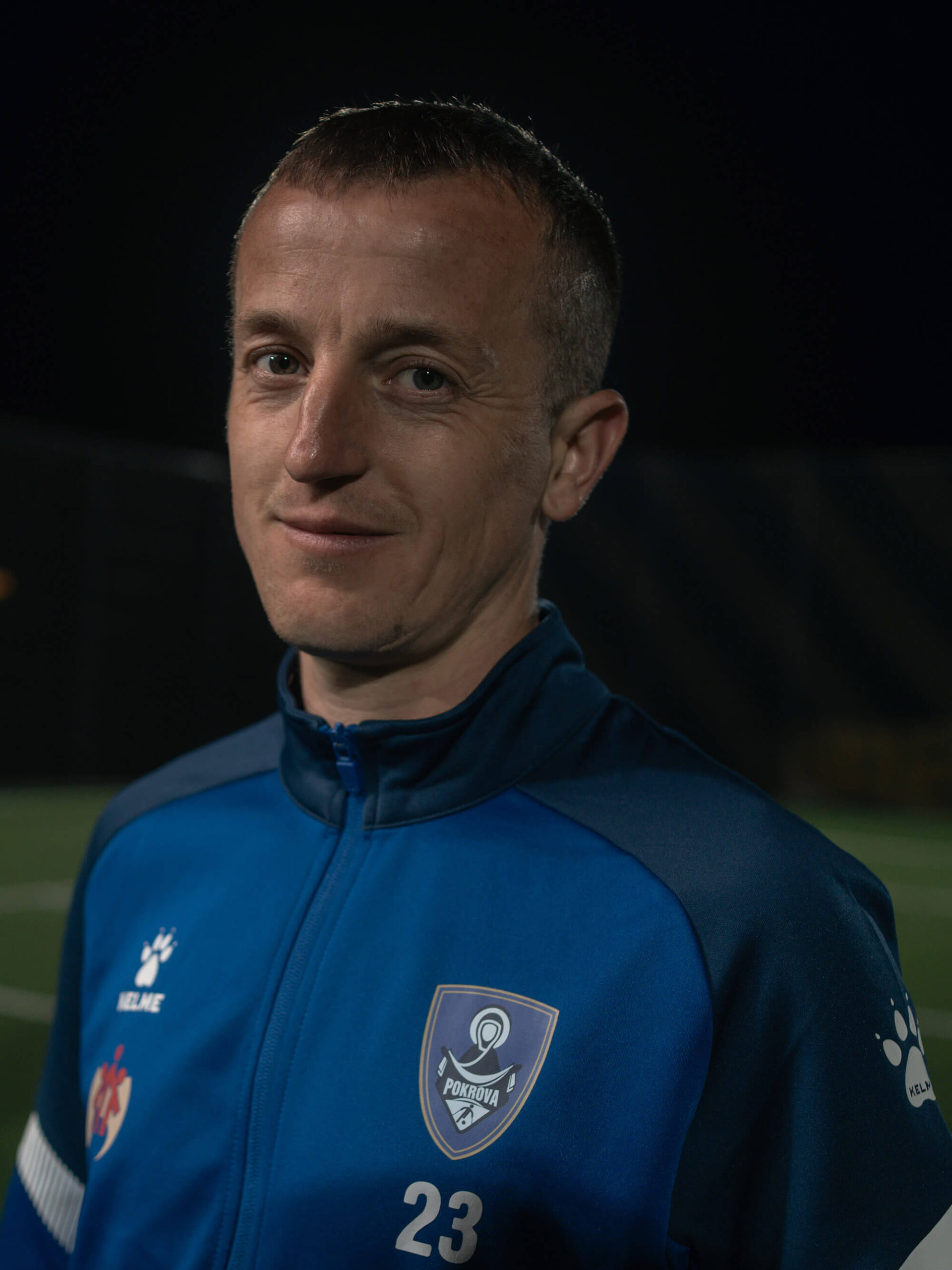
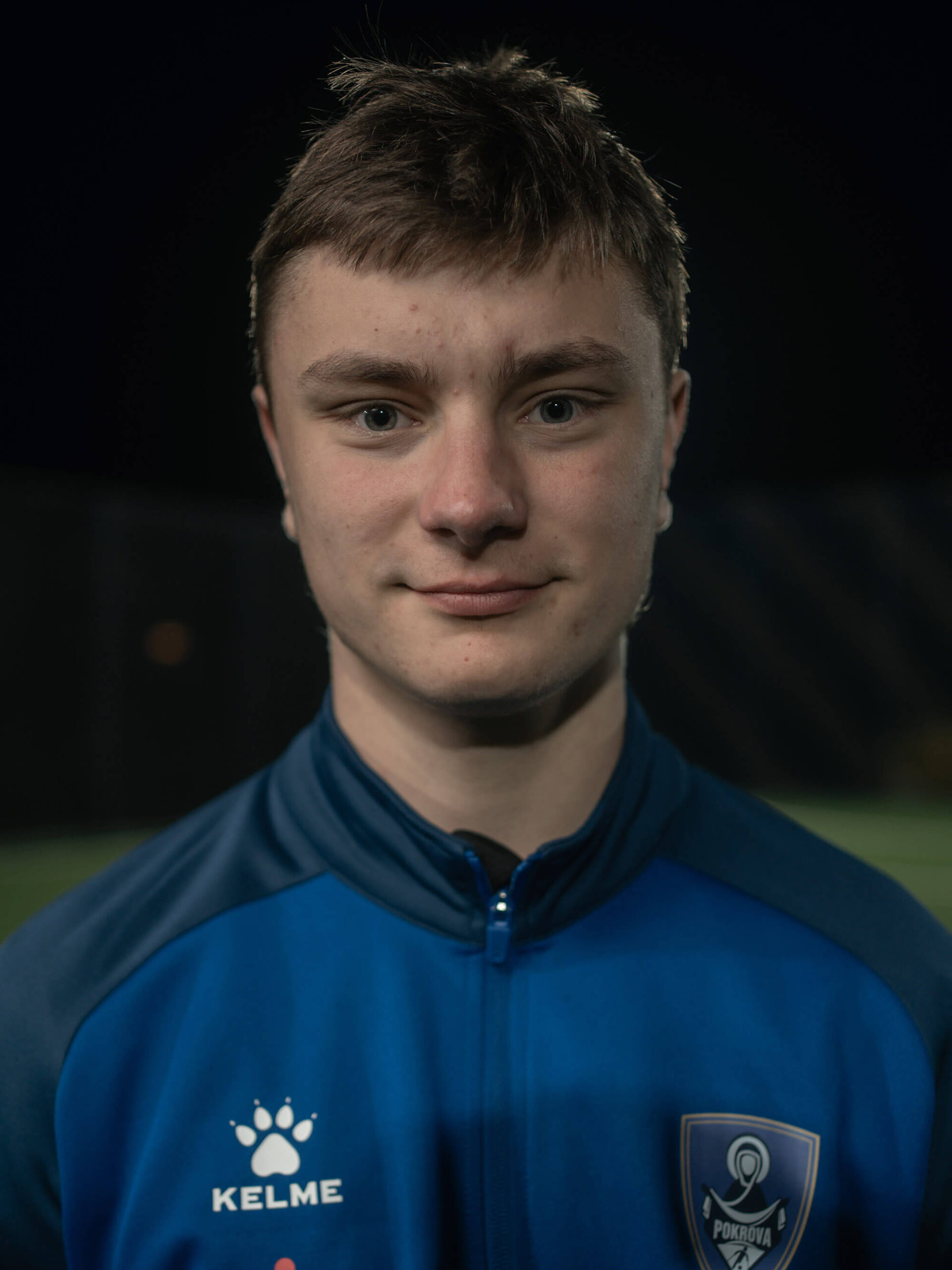
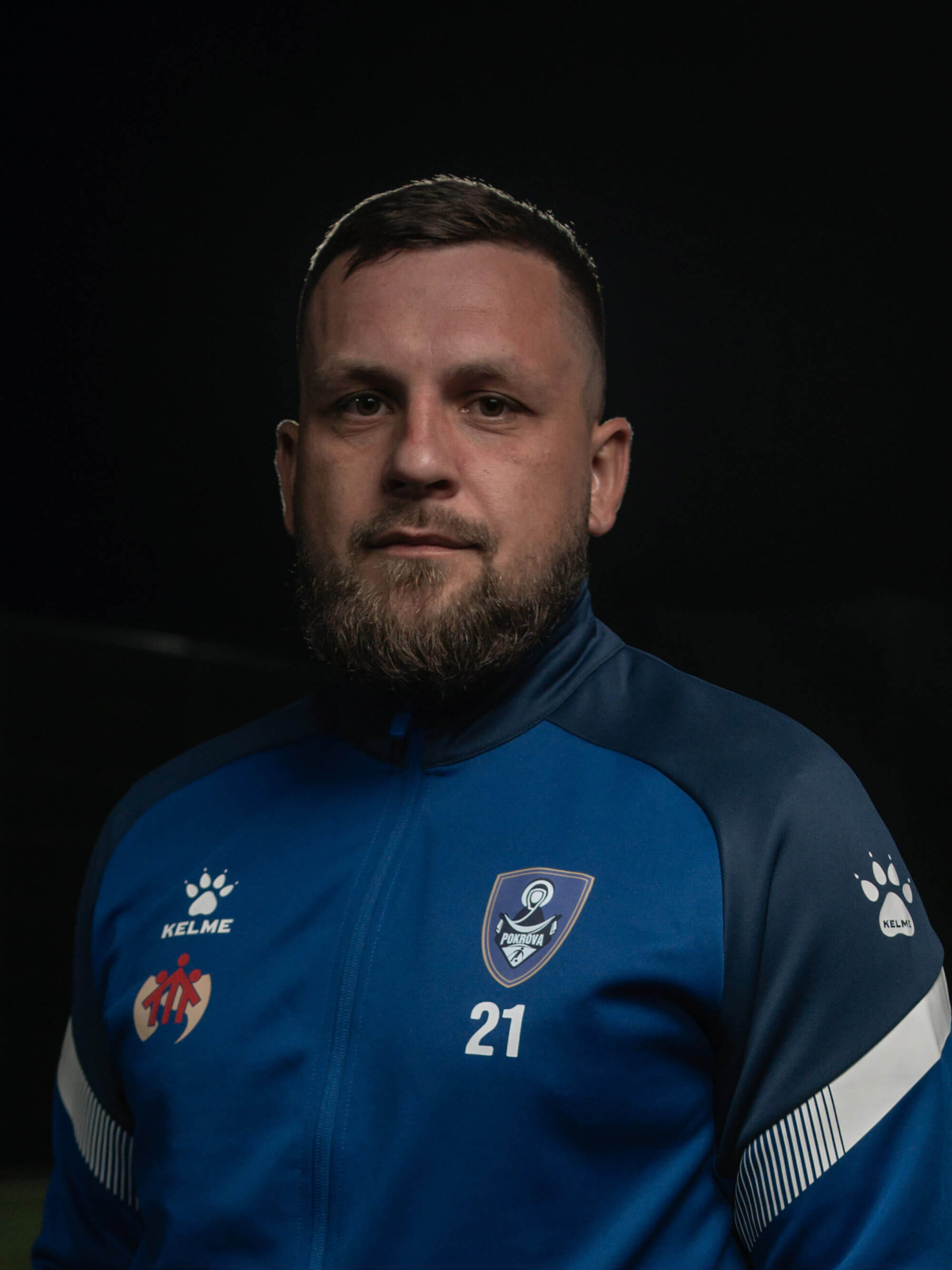
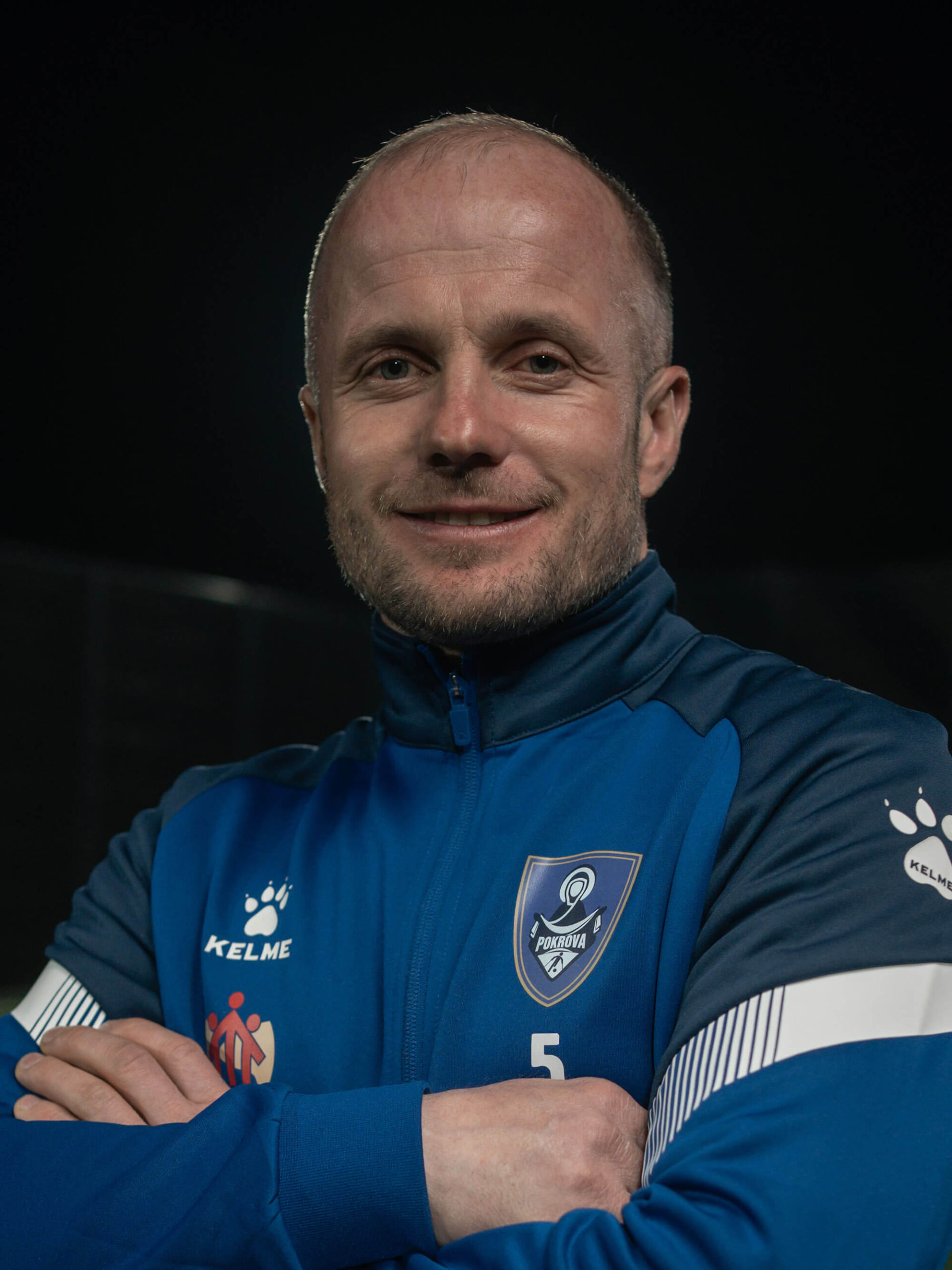
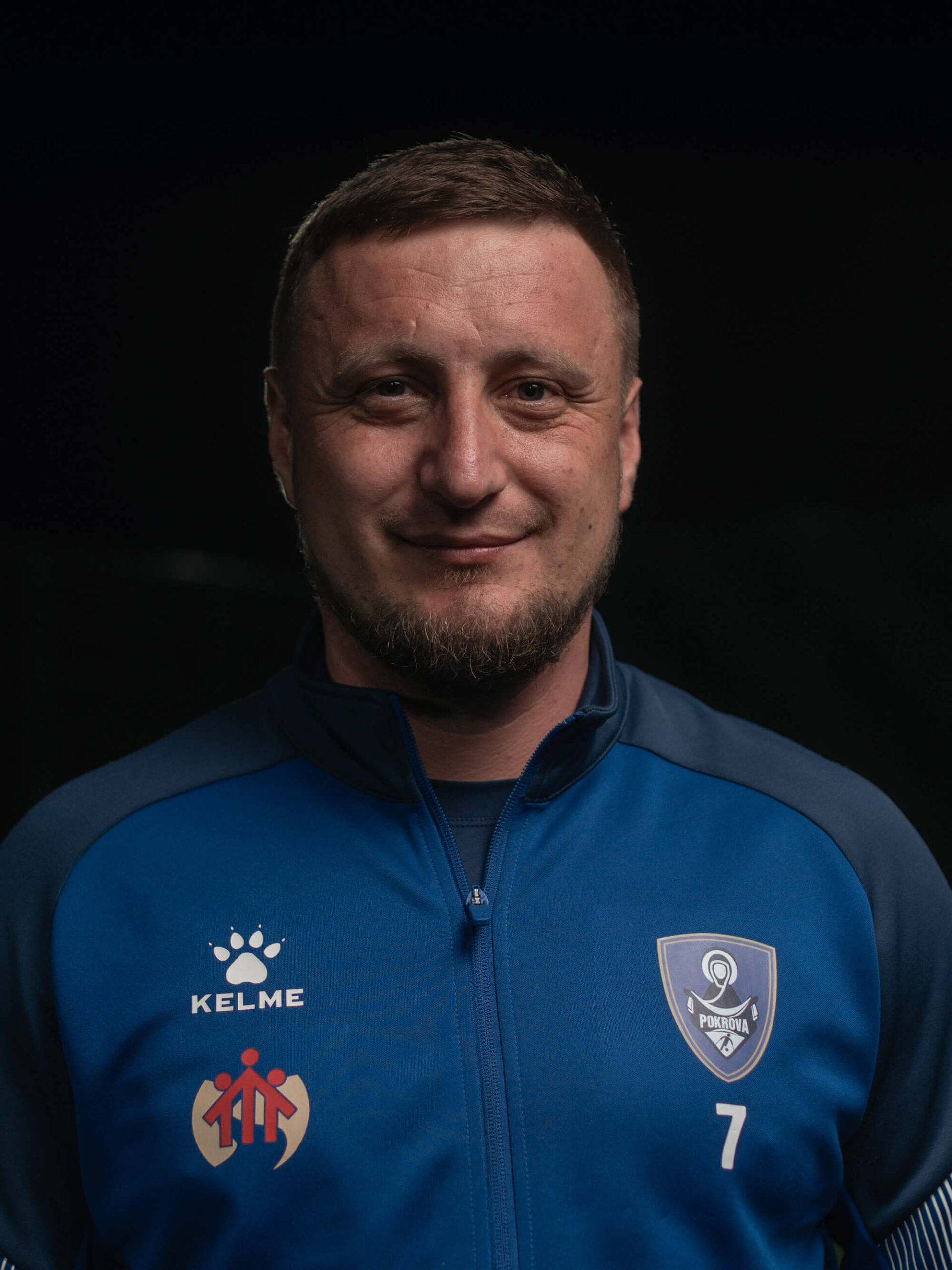
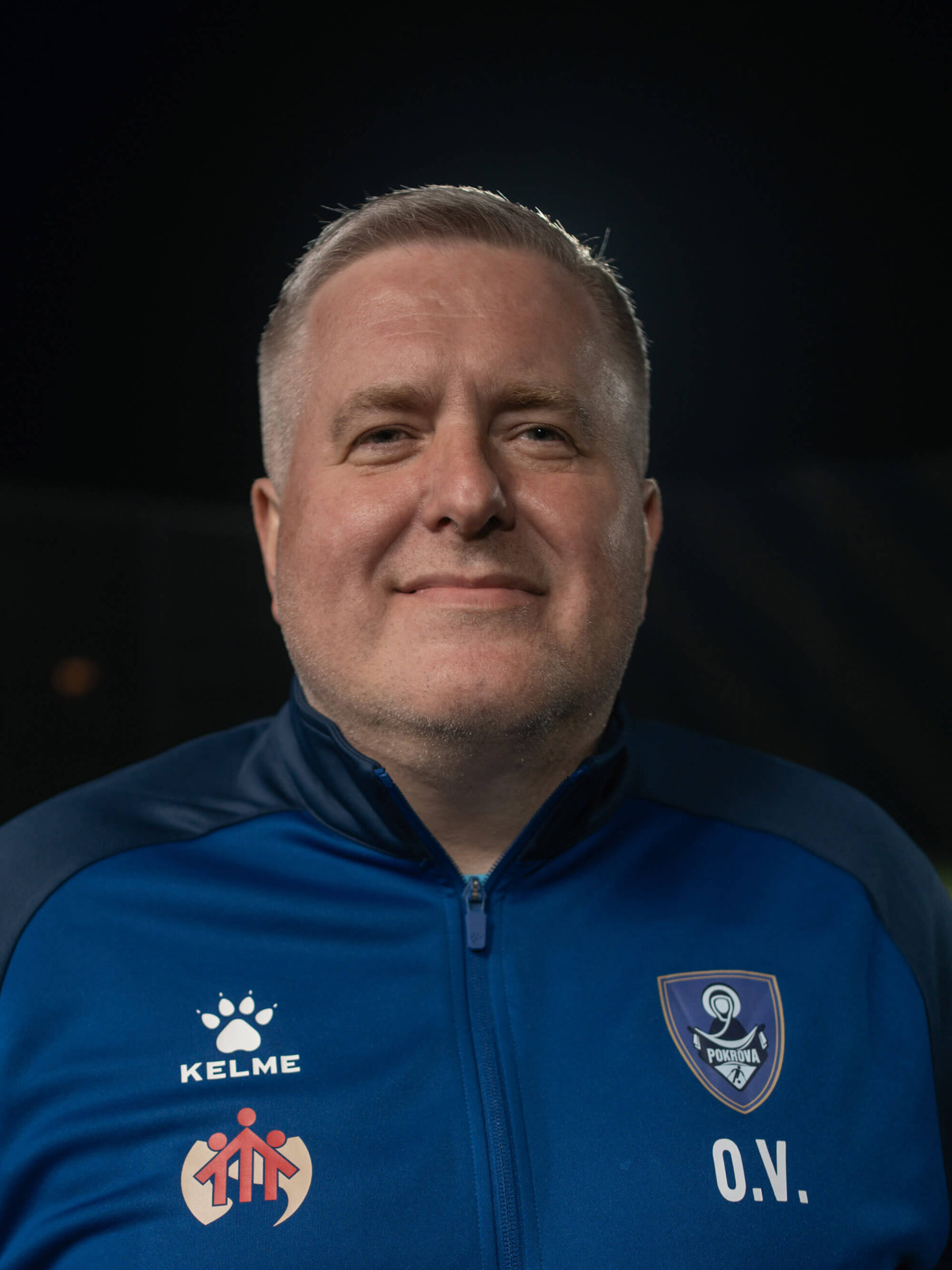
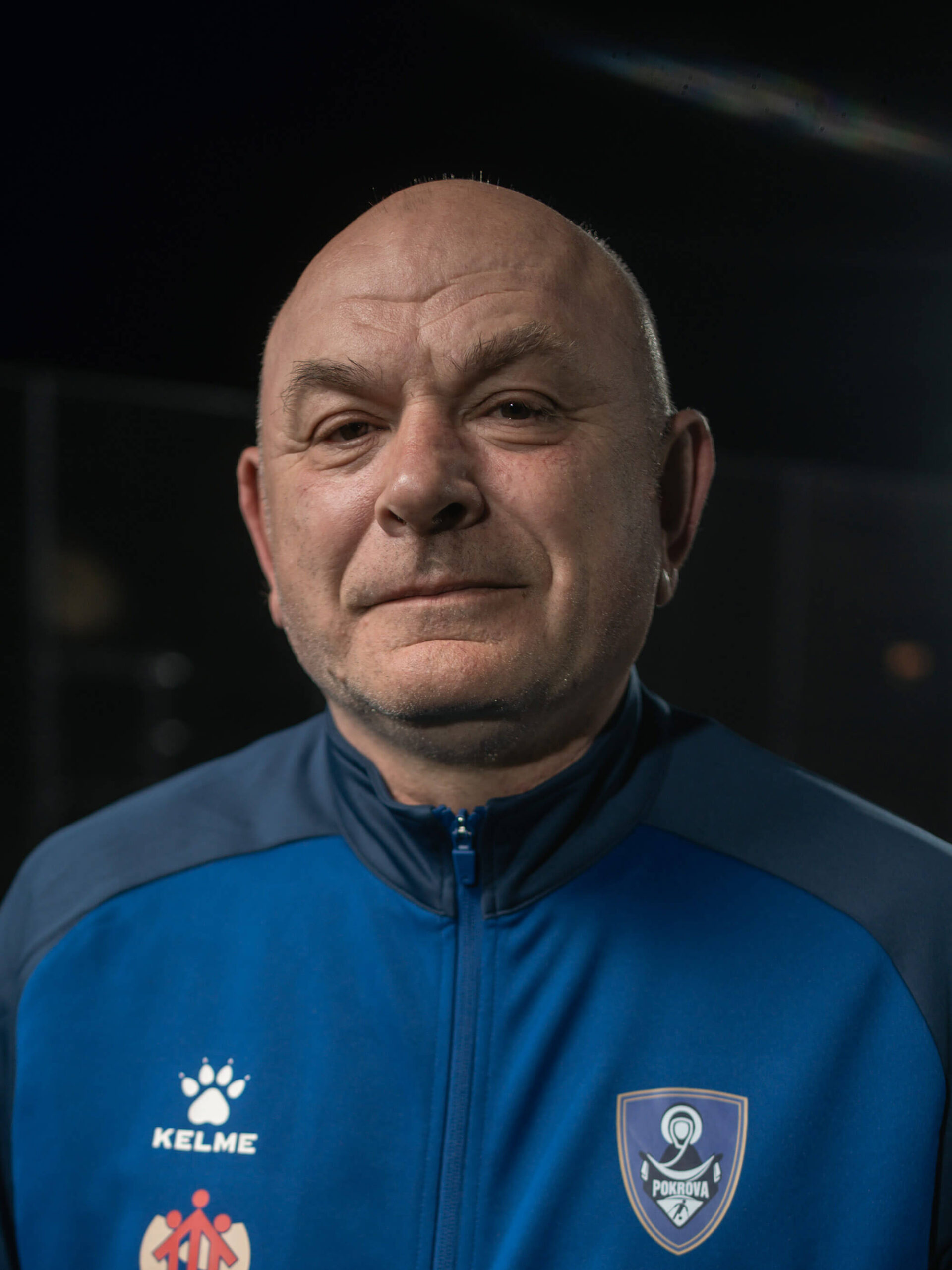
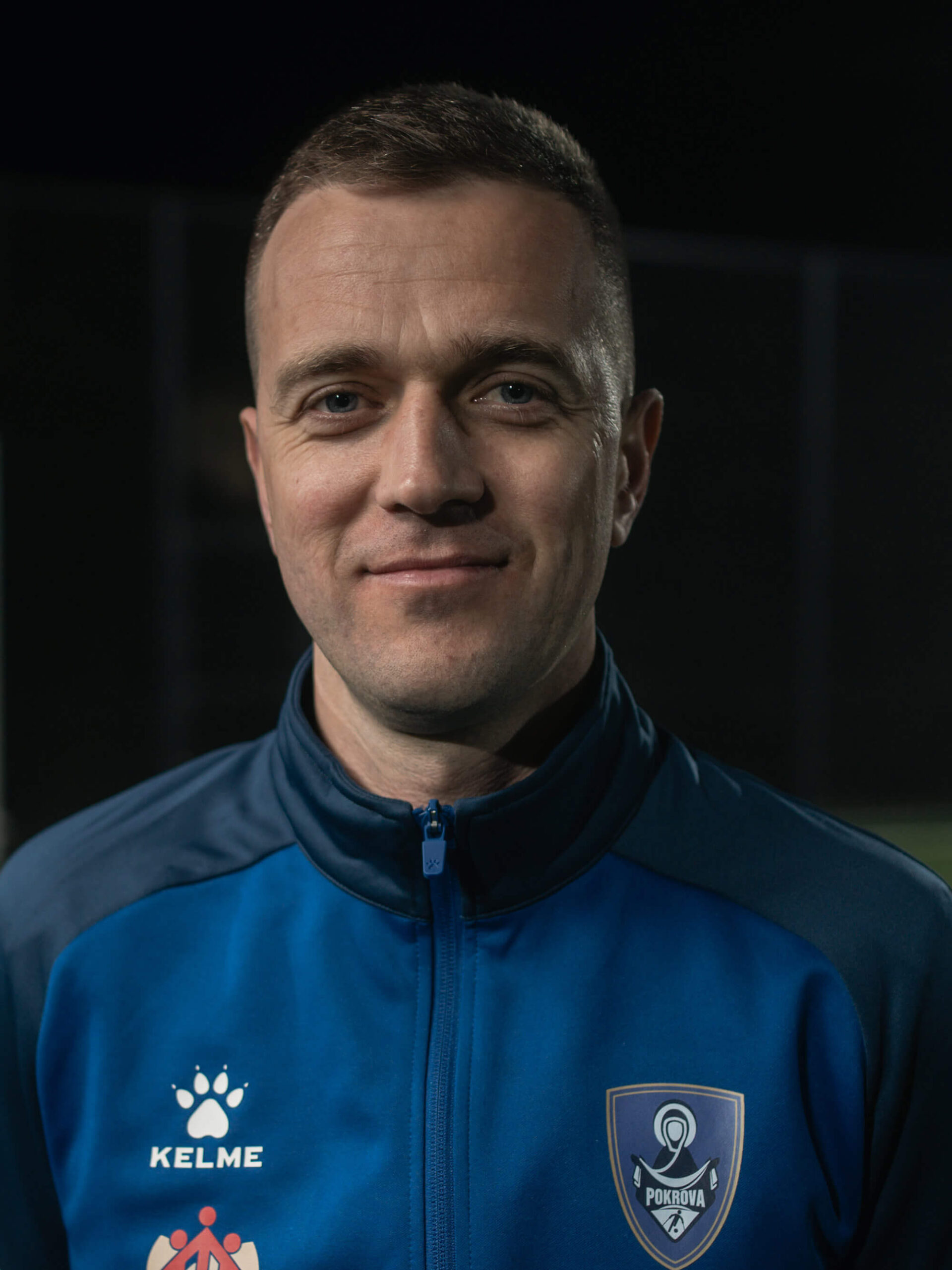
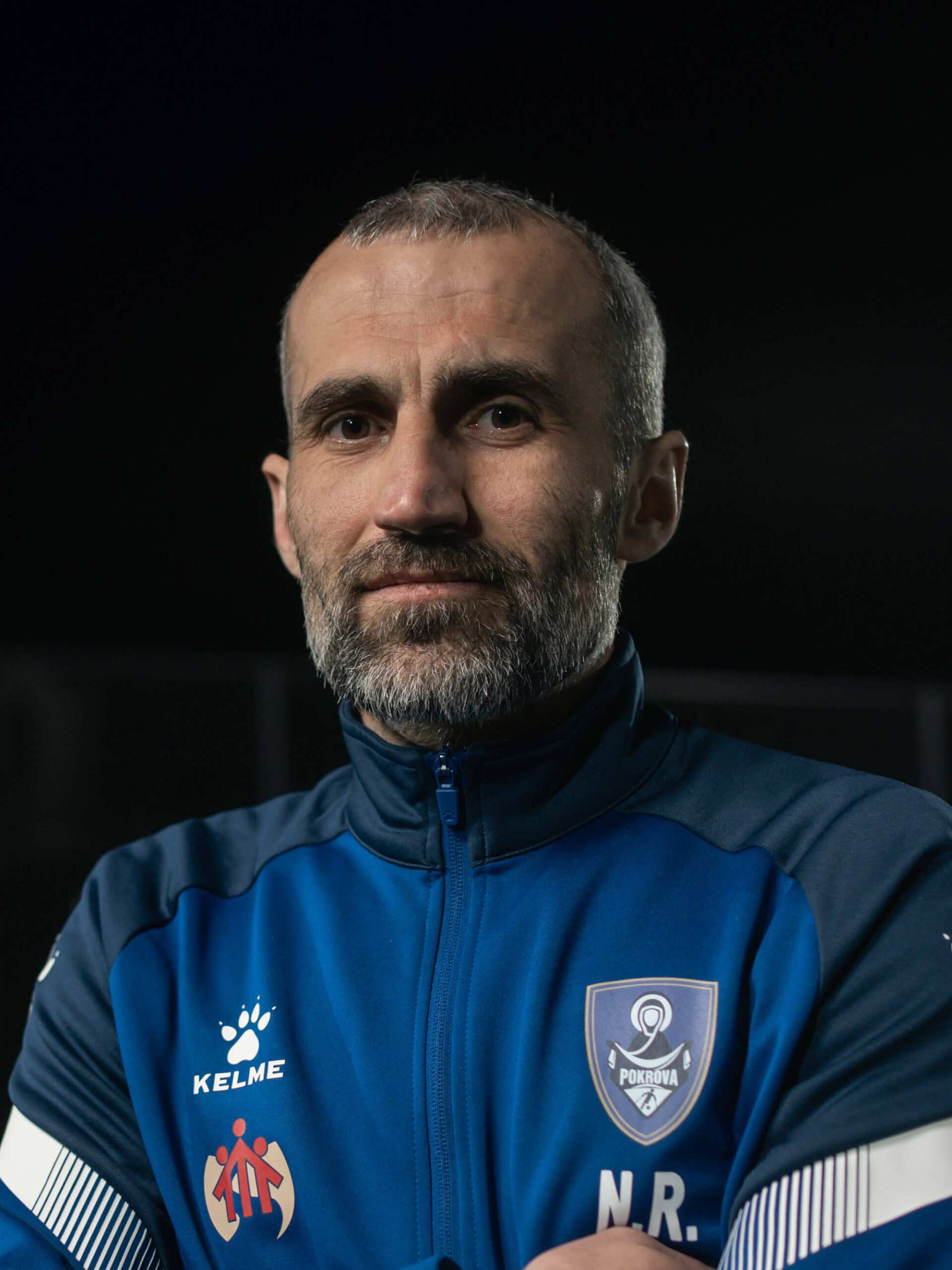
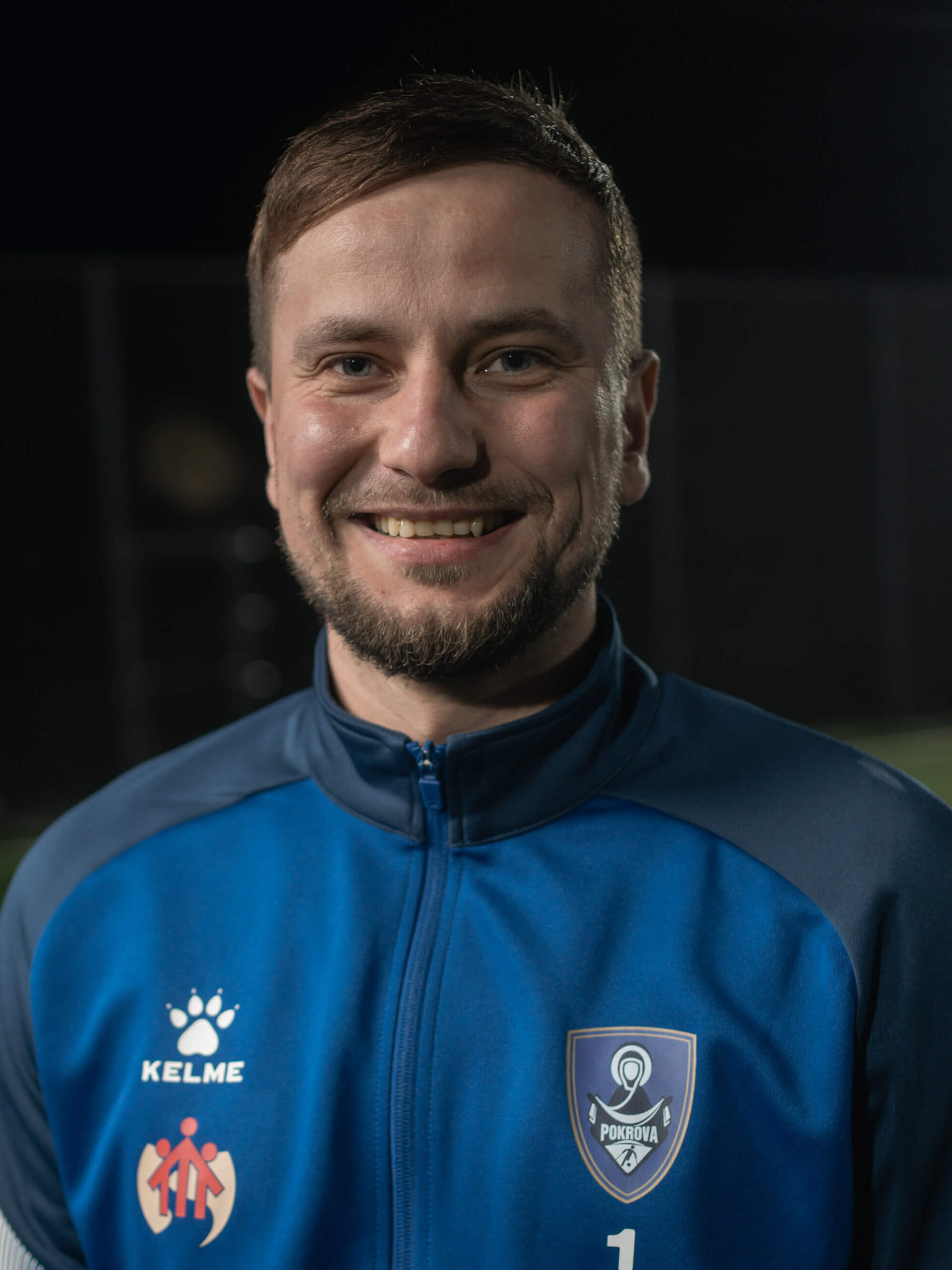
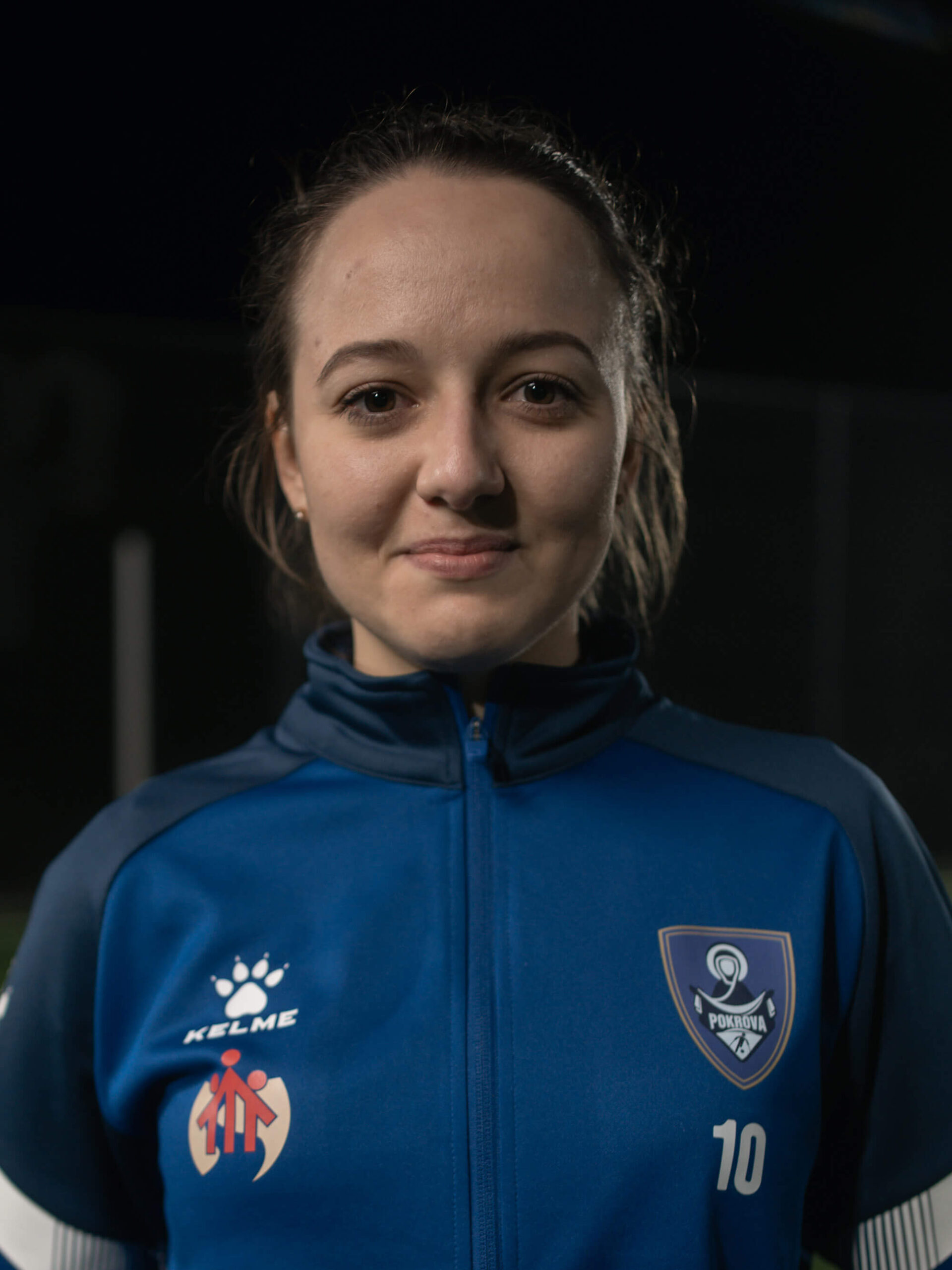
“The Power to Continue” is a collaborative project between the United Nations Development Programme in Ukraine and Reporters. Our goal is to share unique stories of veterans and civilians who have lost limbs in Russia’s war against Ukraine, and not only found the strength to survive the trauma but also became drivers behind social projects and bold business ideas. We also highlight the stories of people who have helped them along the way. While there are not many of them, these people inspire and speak openly about their experiences, and this might become a starting point for others.
The special project was initiated by Reporters with the assistance of UNDP in Ukraine and financial support from the European Union as part of the “EU4Recovery—Empowering Communities in Ukraine” project. The opinions, recommendations, assessments, and conclusions expressed in these materials do not necessarily reflect the official position of UNDP, the EU, or their partners.
Have read to the end! What's next?
Next is a small request.
Building media in Ukraine is not an easy task. It requires special experience, knowledge and special resources. Literary reportage is also one of the most expensive genres of journalism. That's why we need your support.
We have no investors or "friendly politicians" - we’ve always been independent. The only dependence we would like to have is dependence on educated and caring readers. We invite you to support us on Patreon, so we could create more valuable things with your help.
Reports130
More






